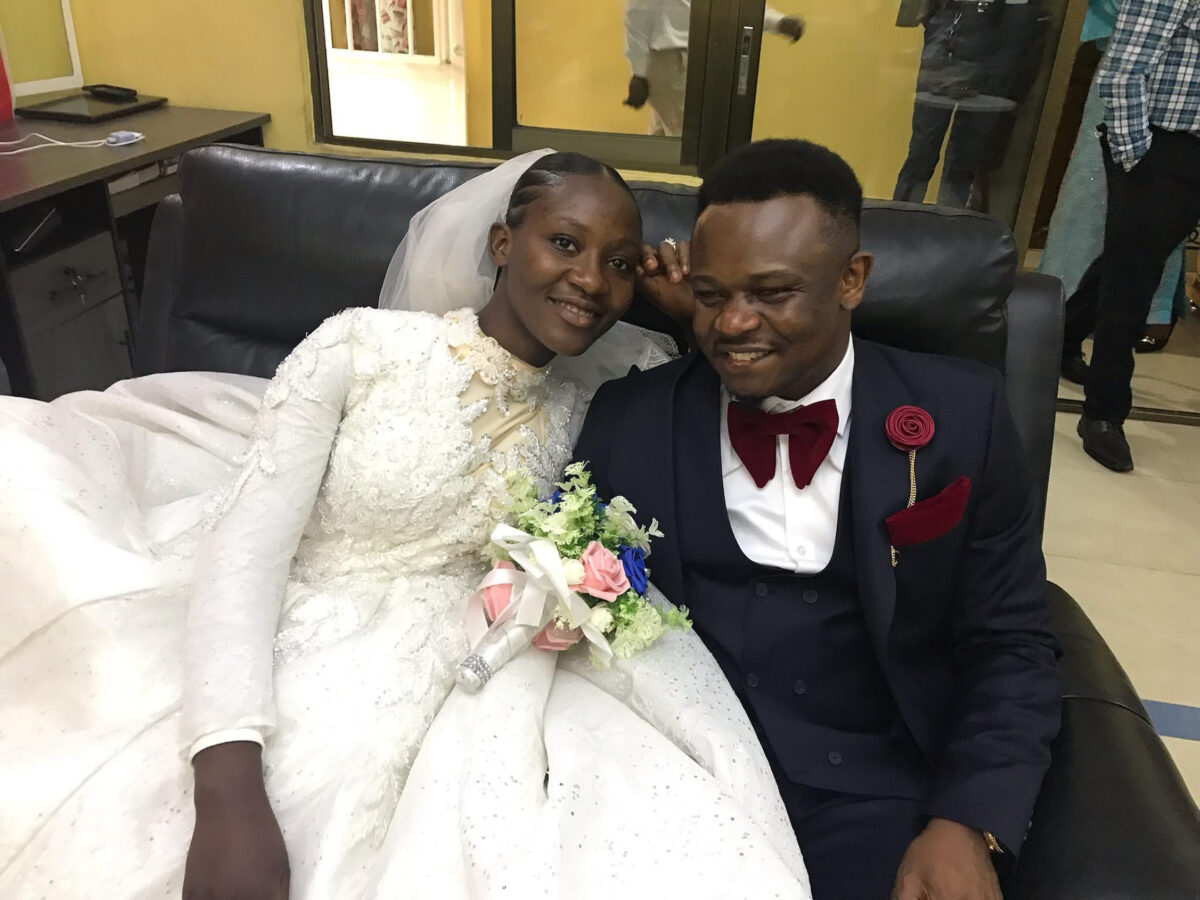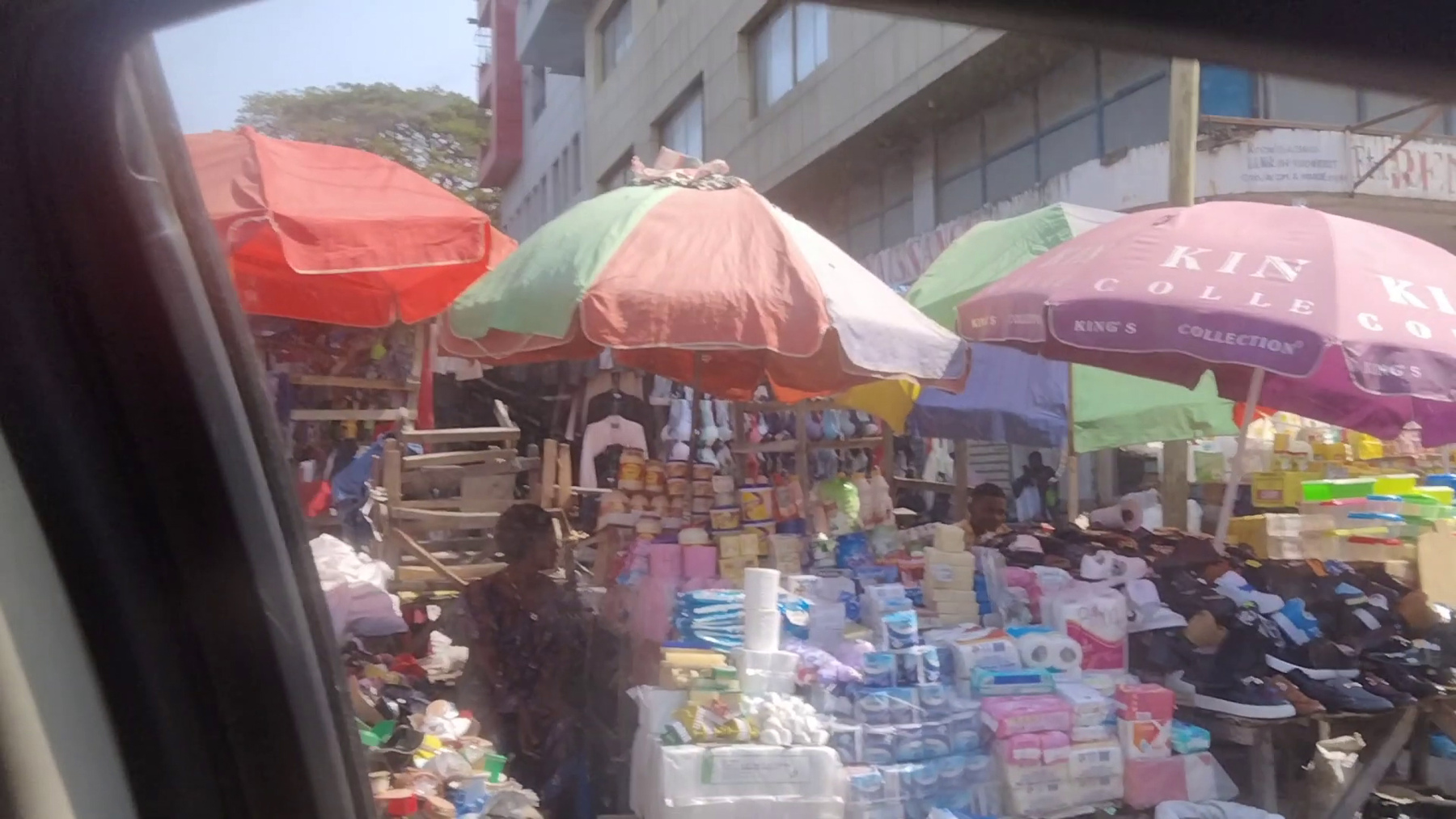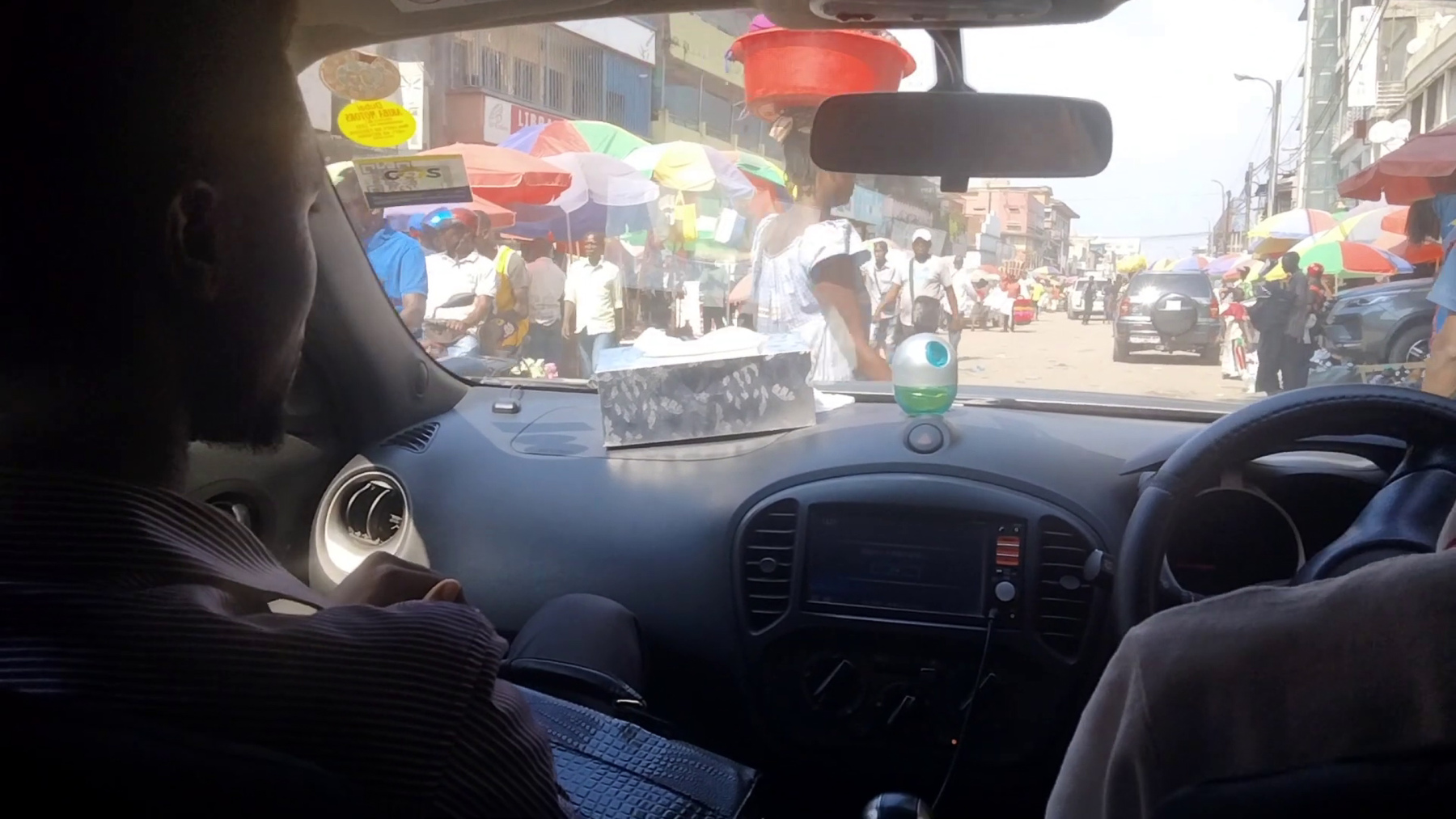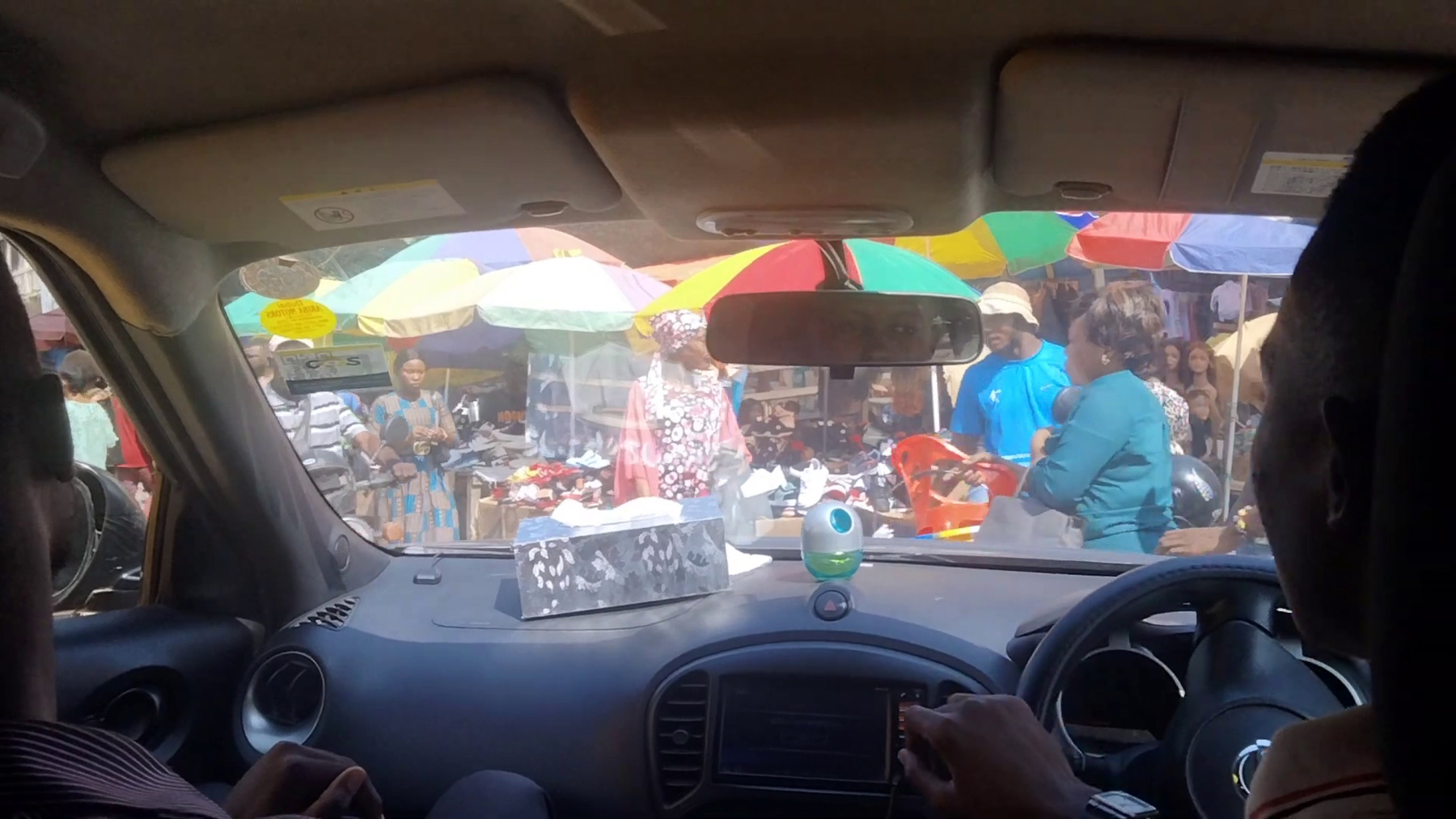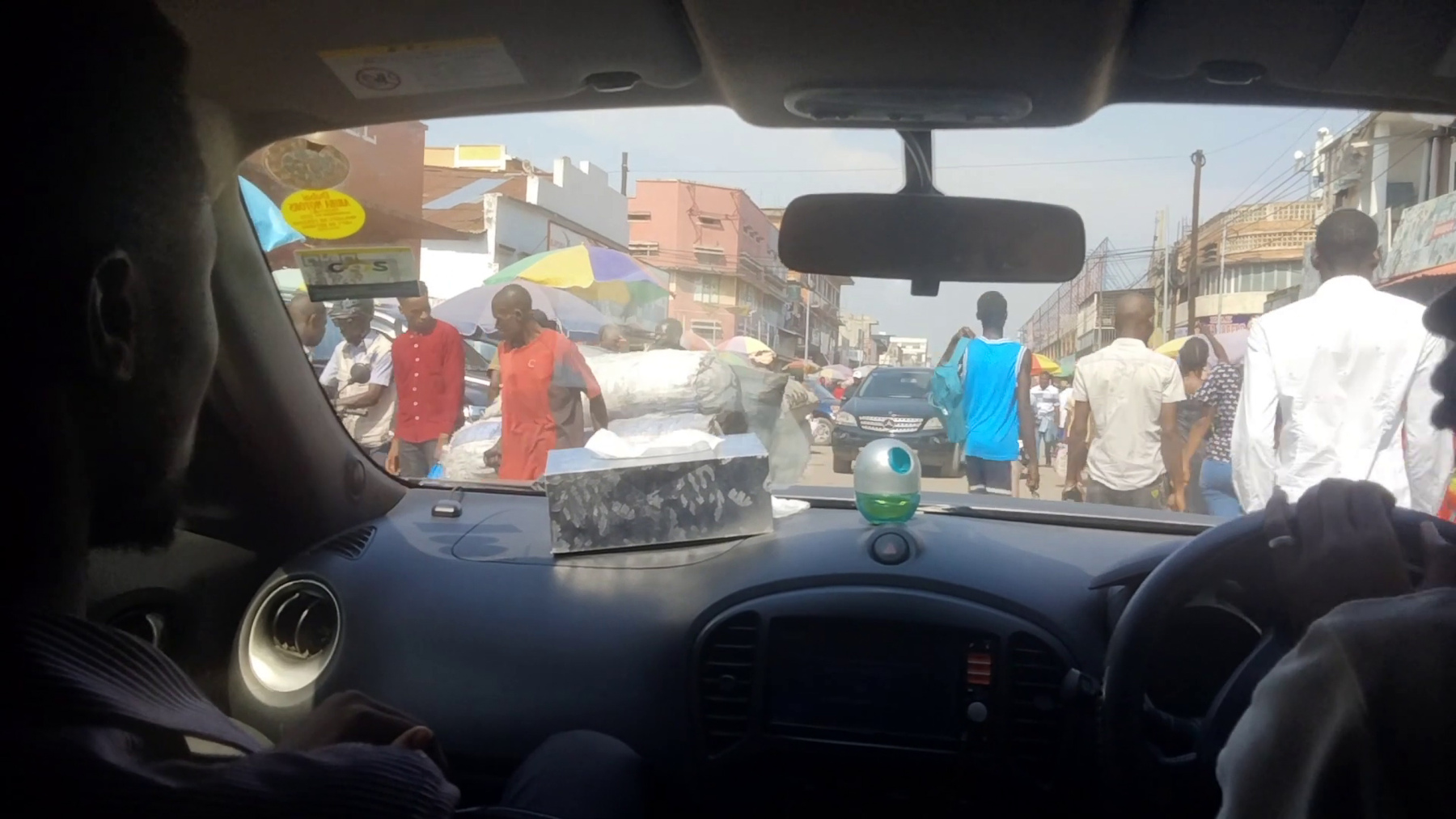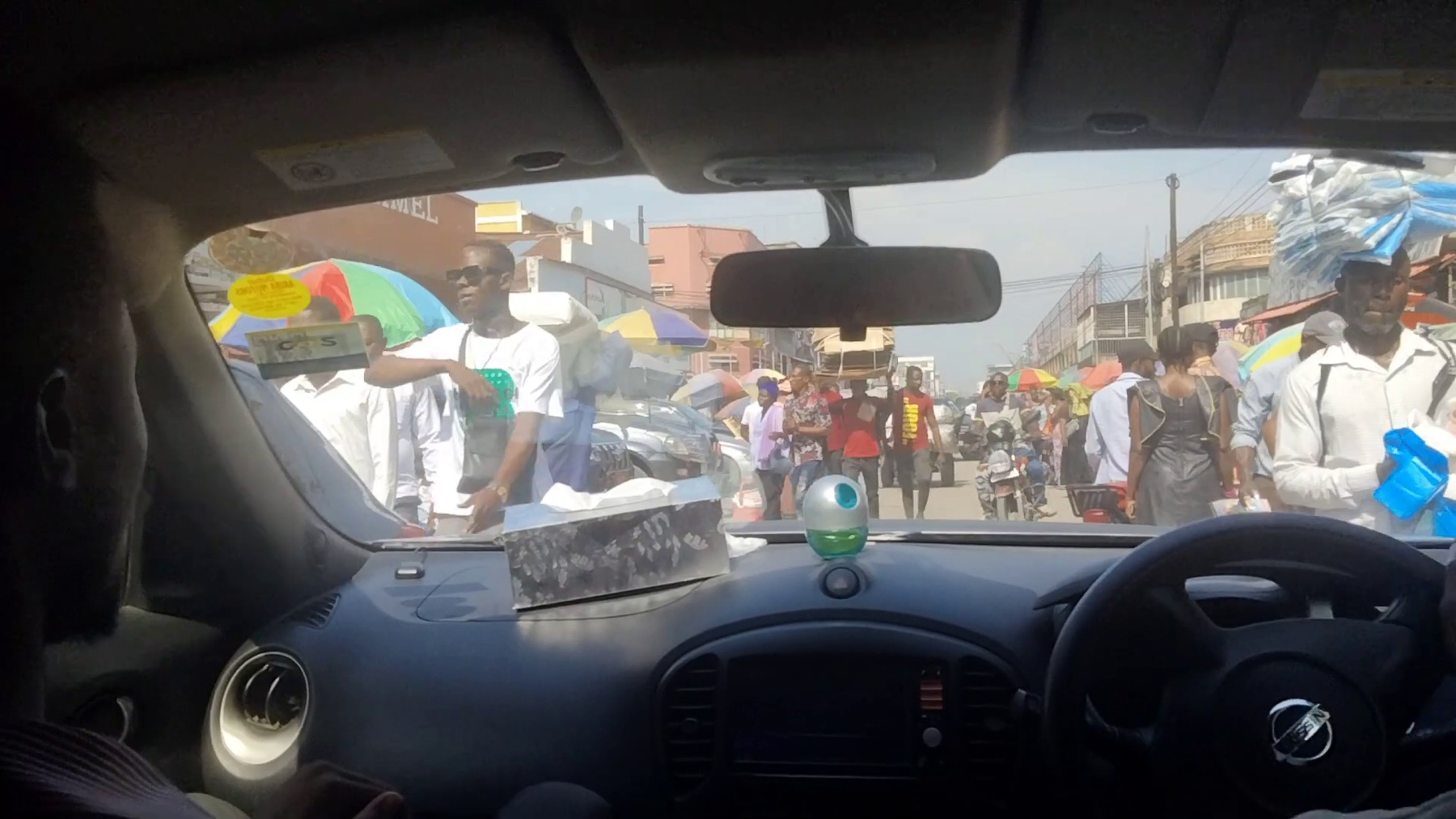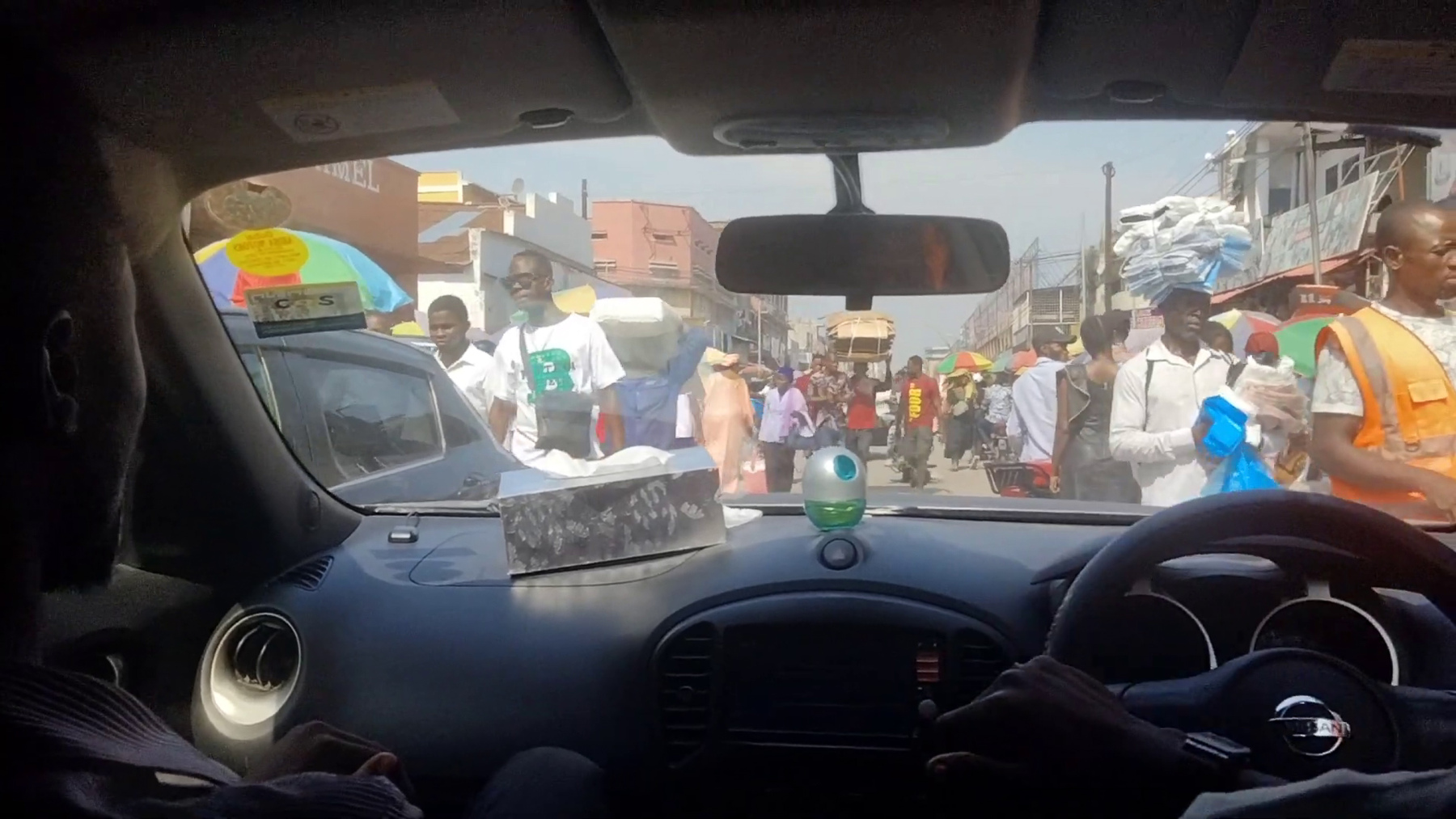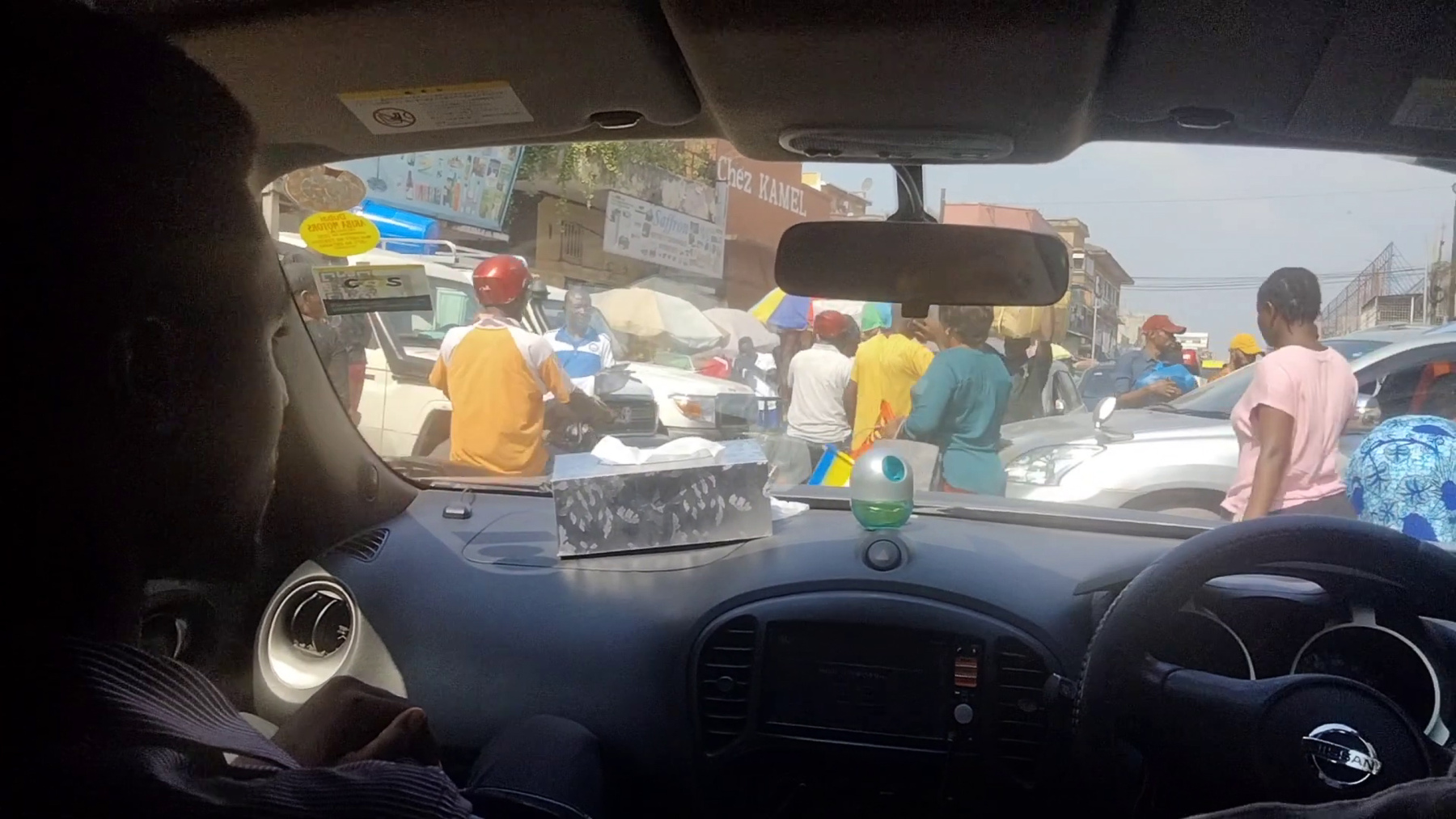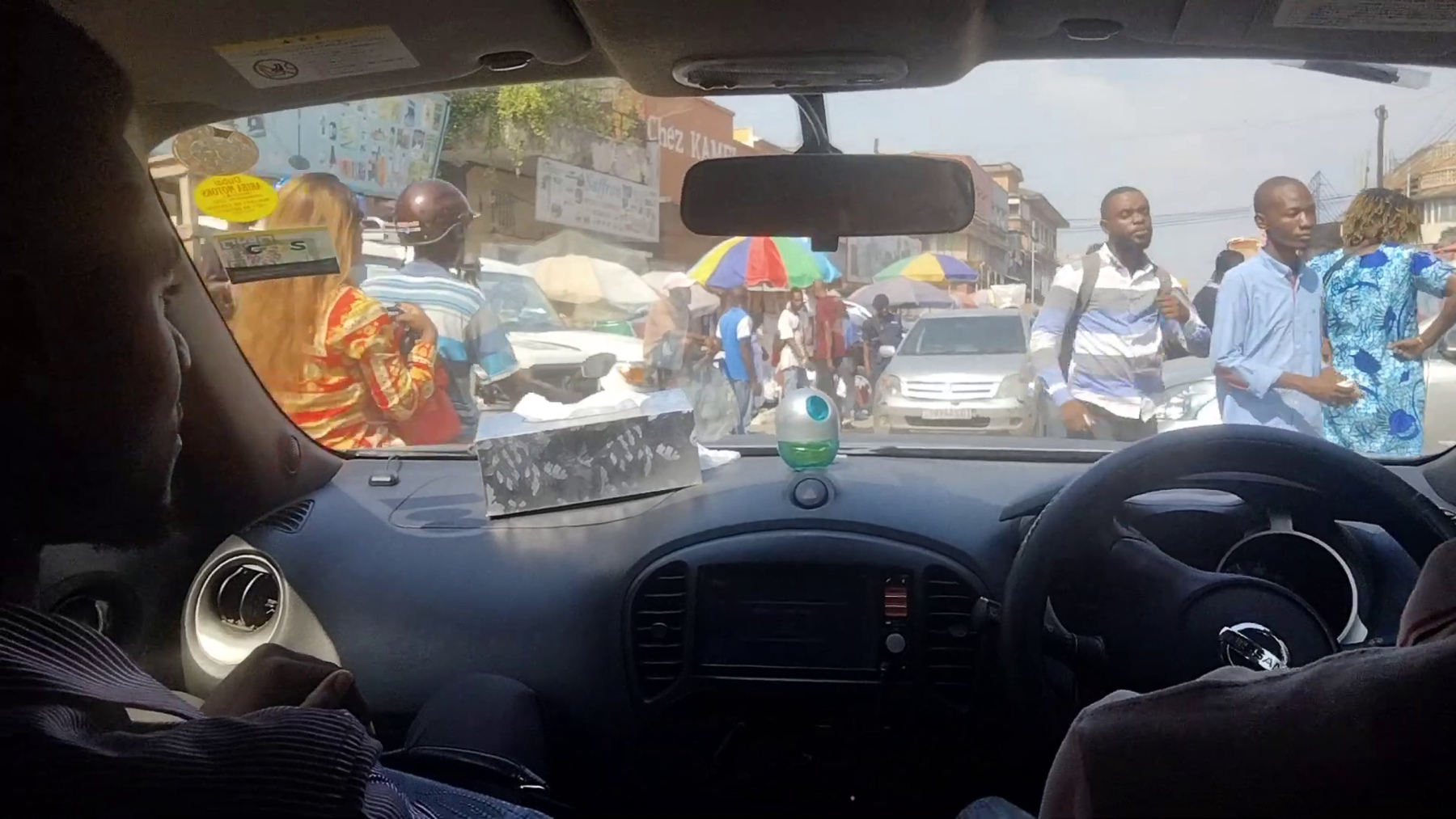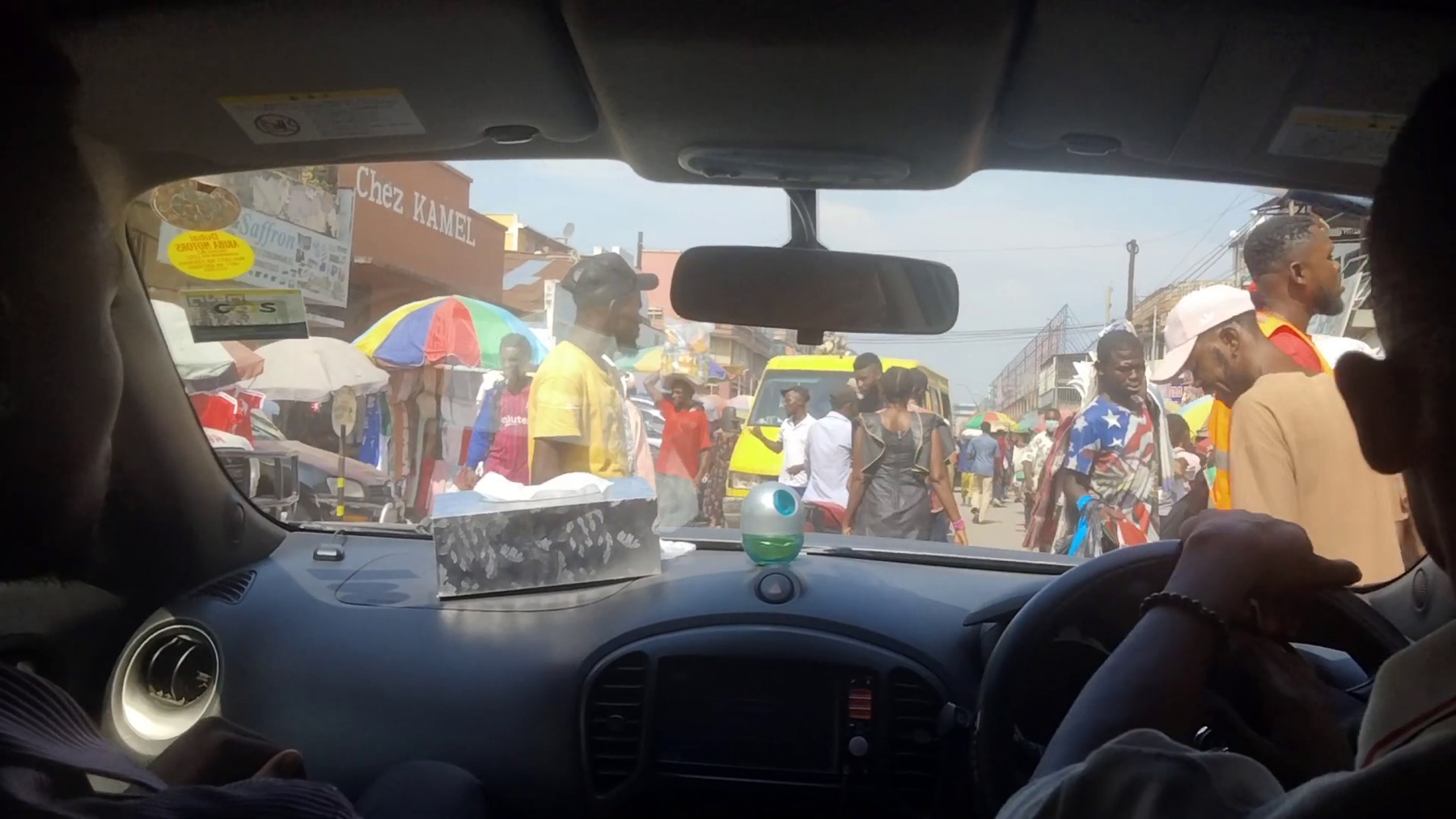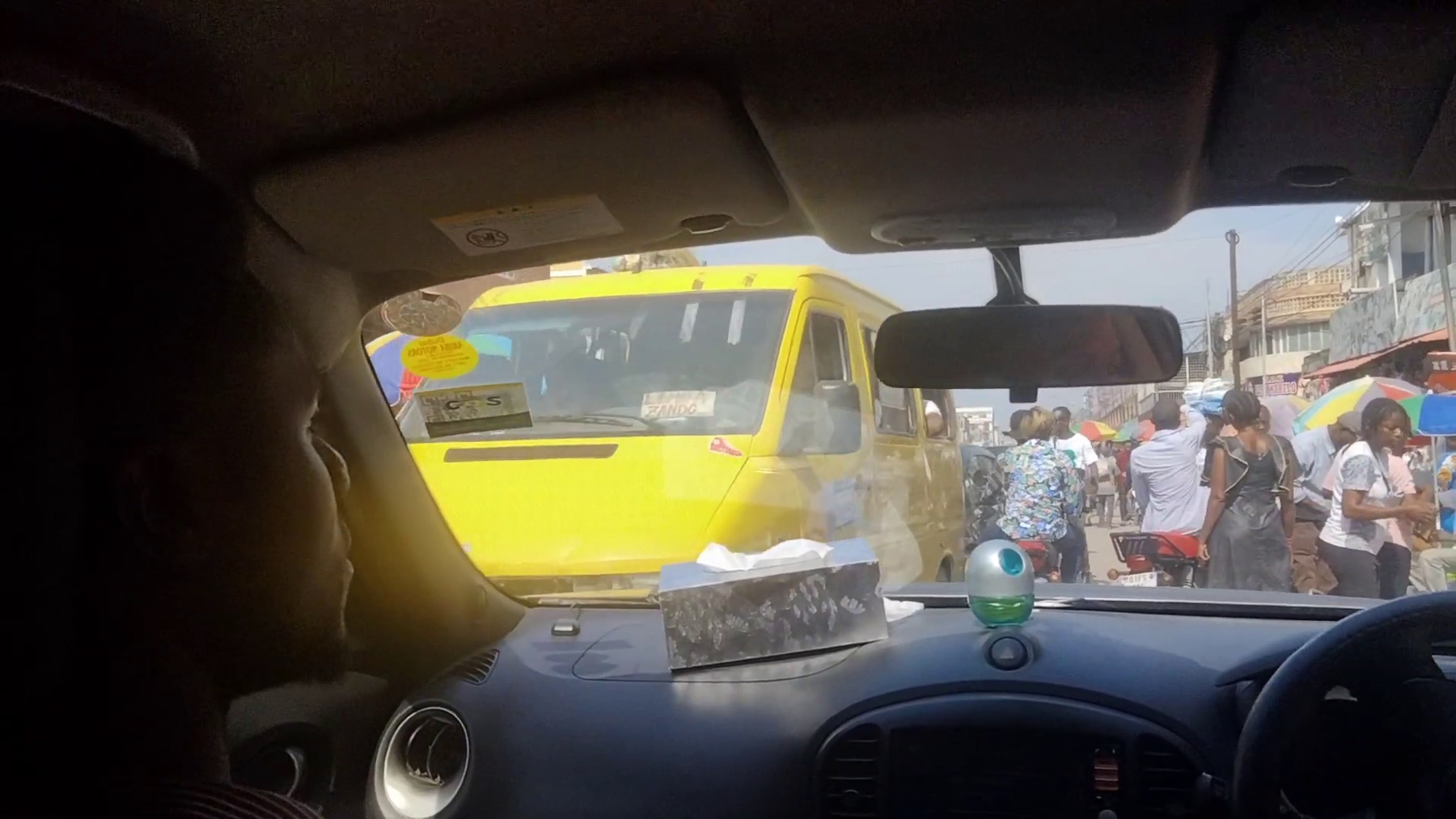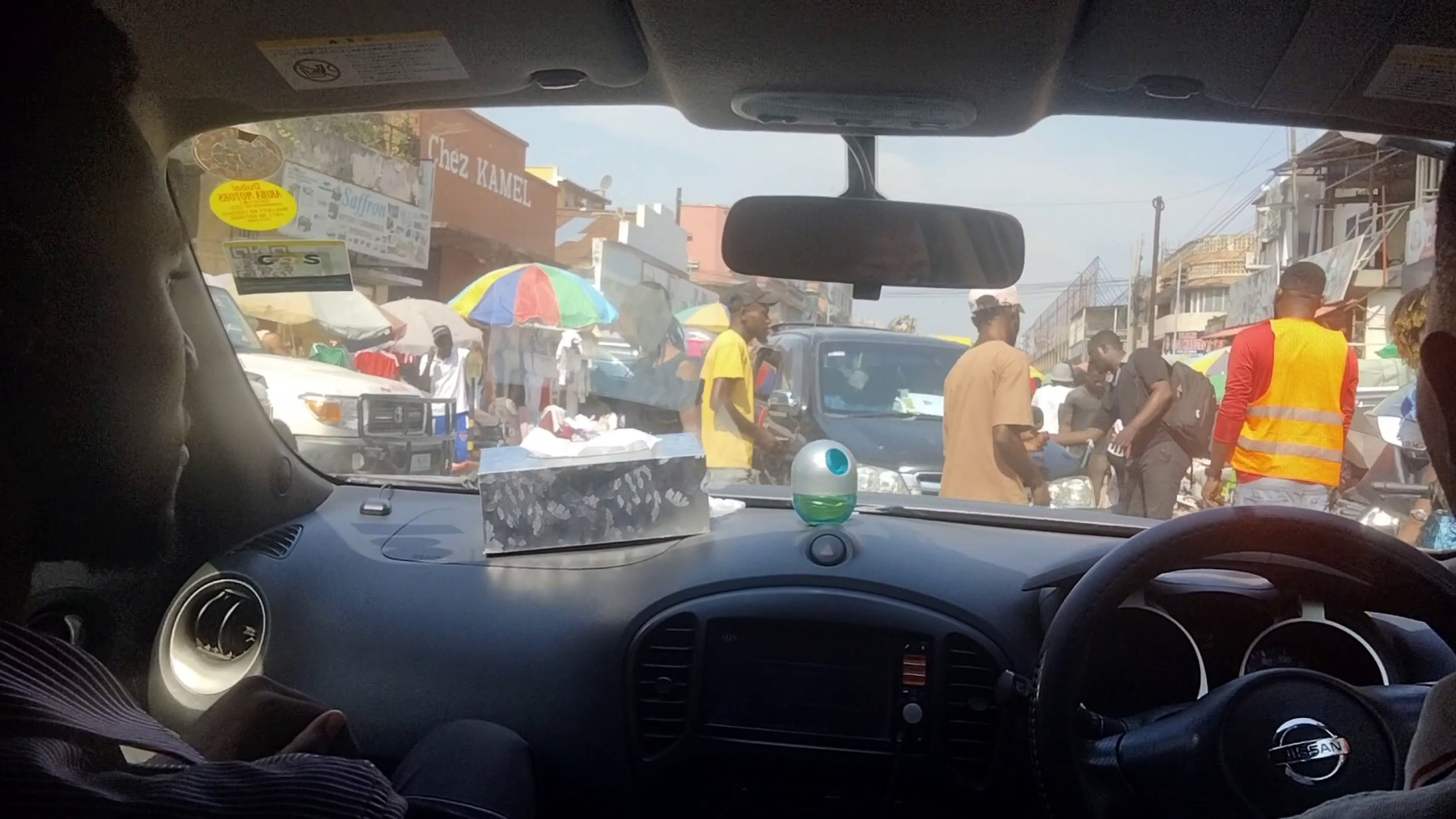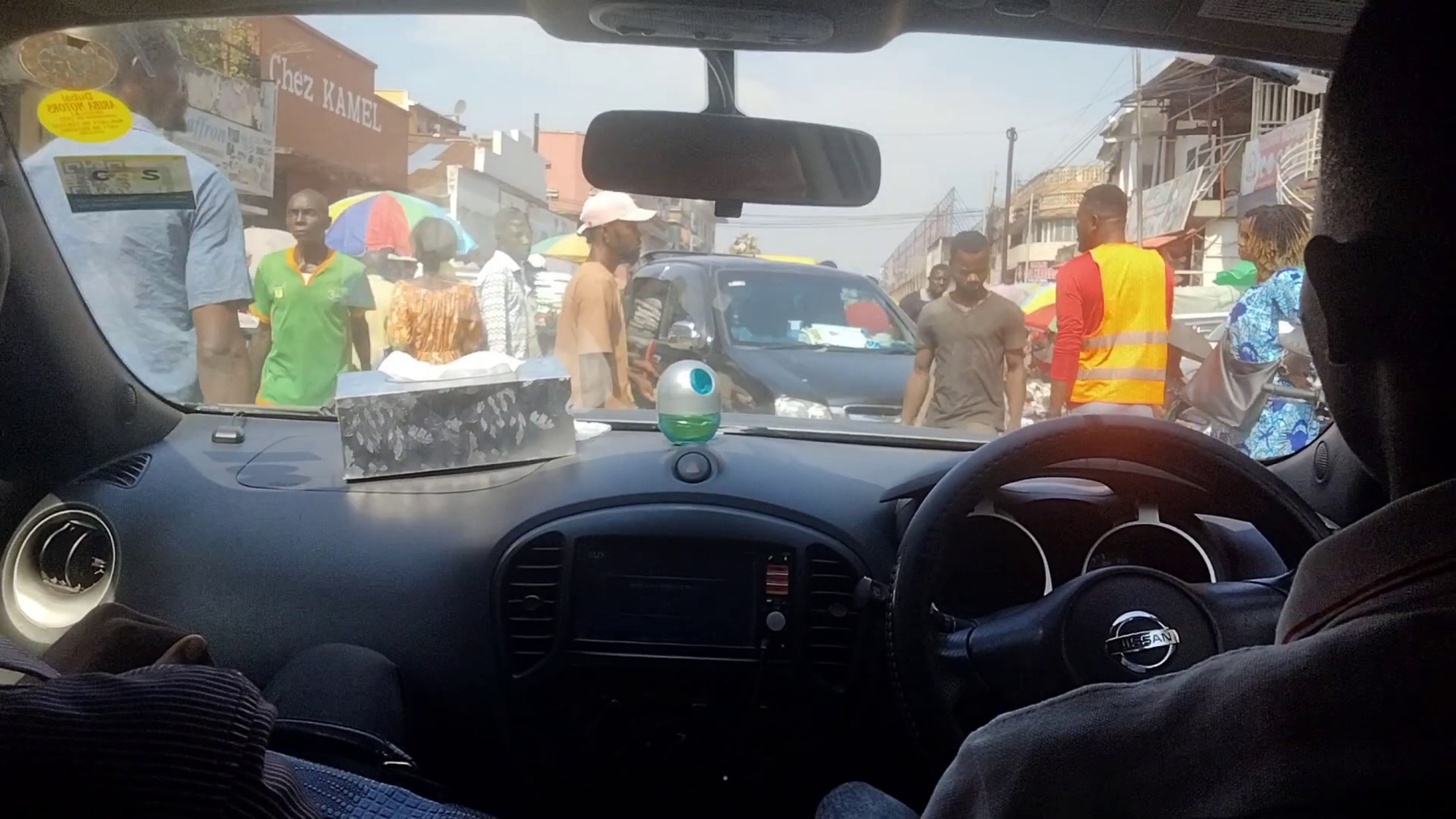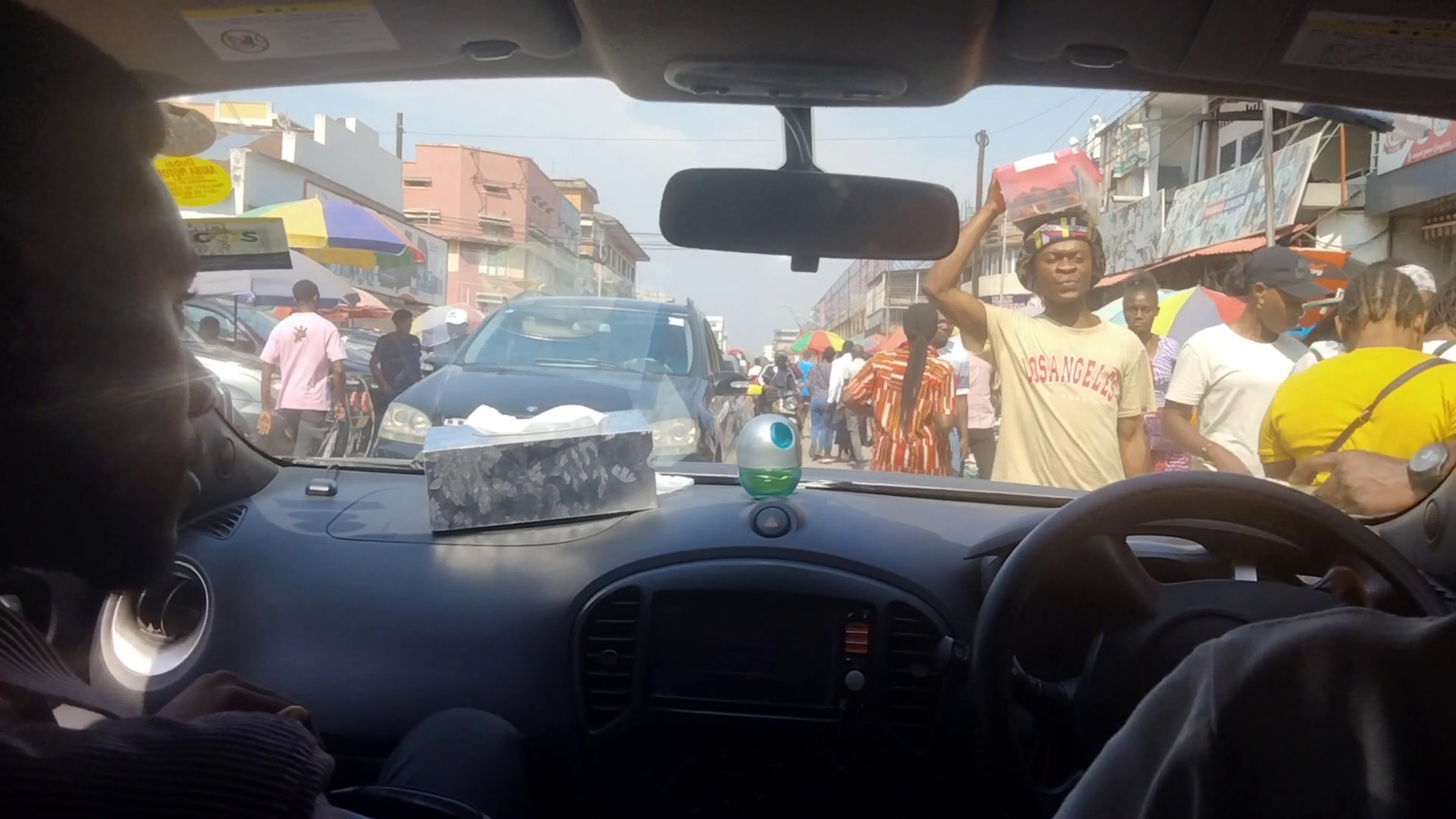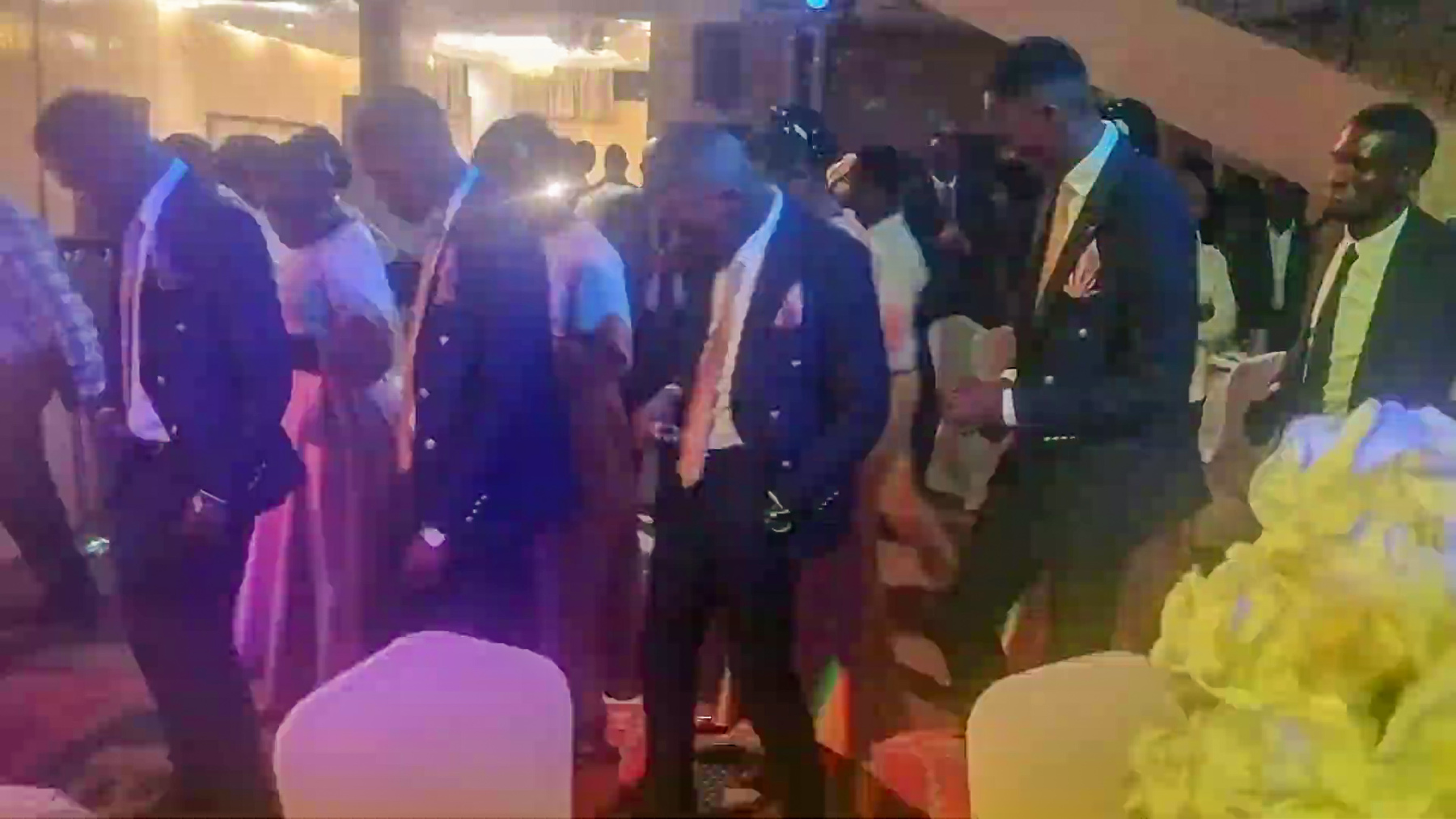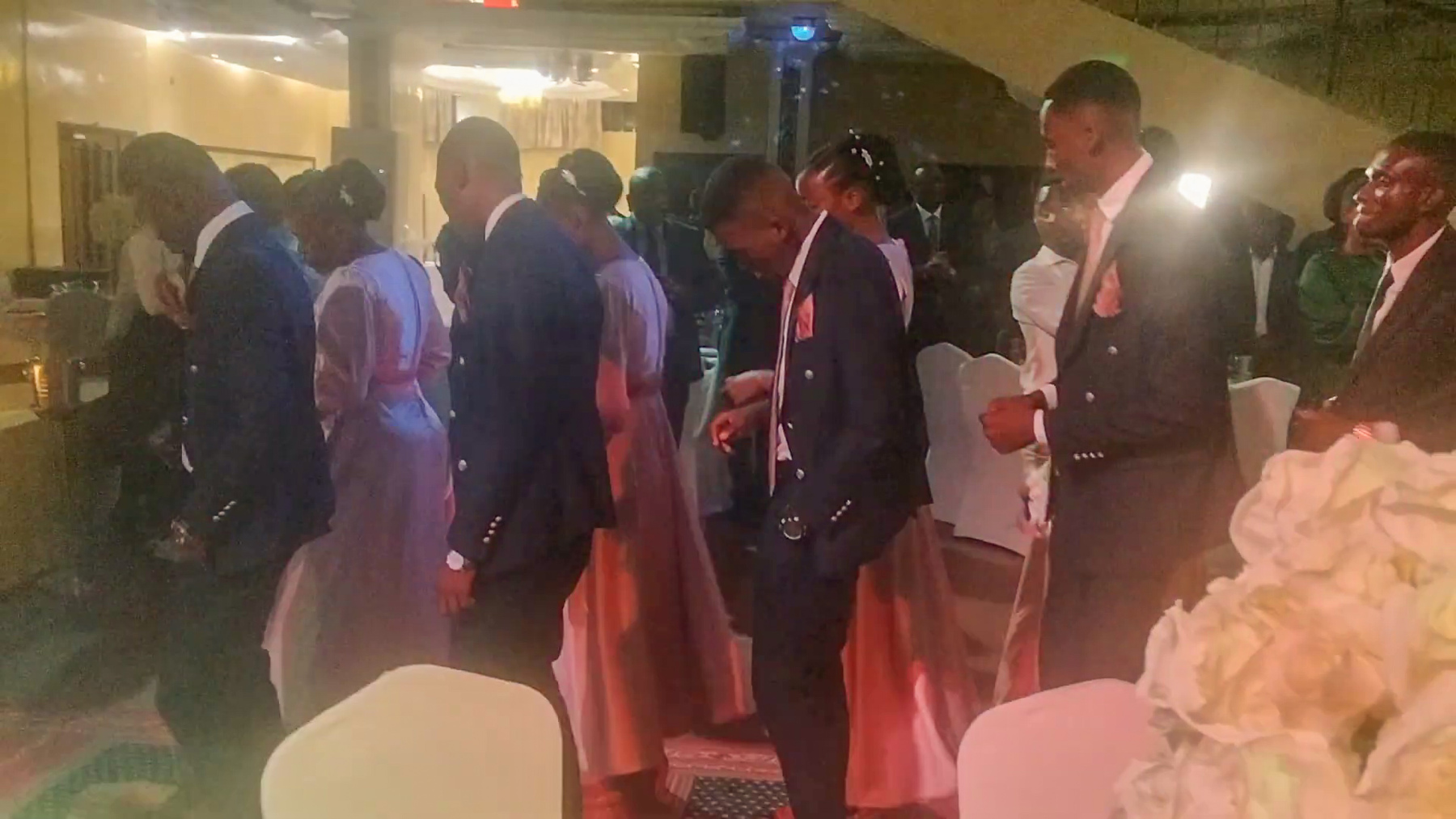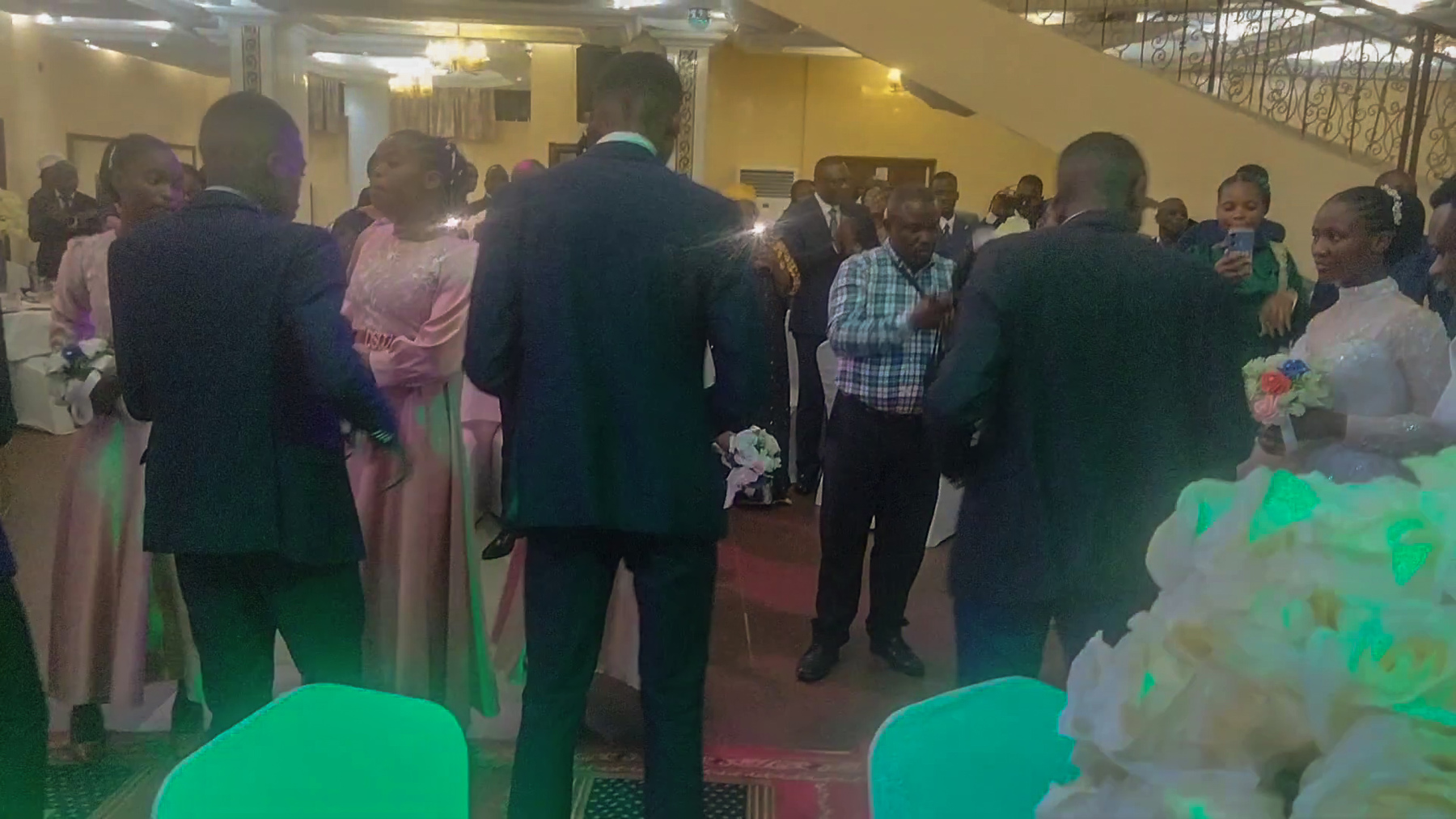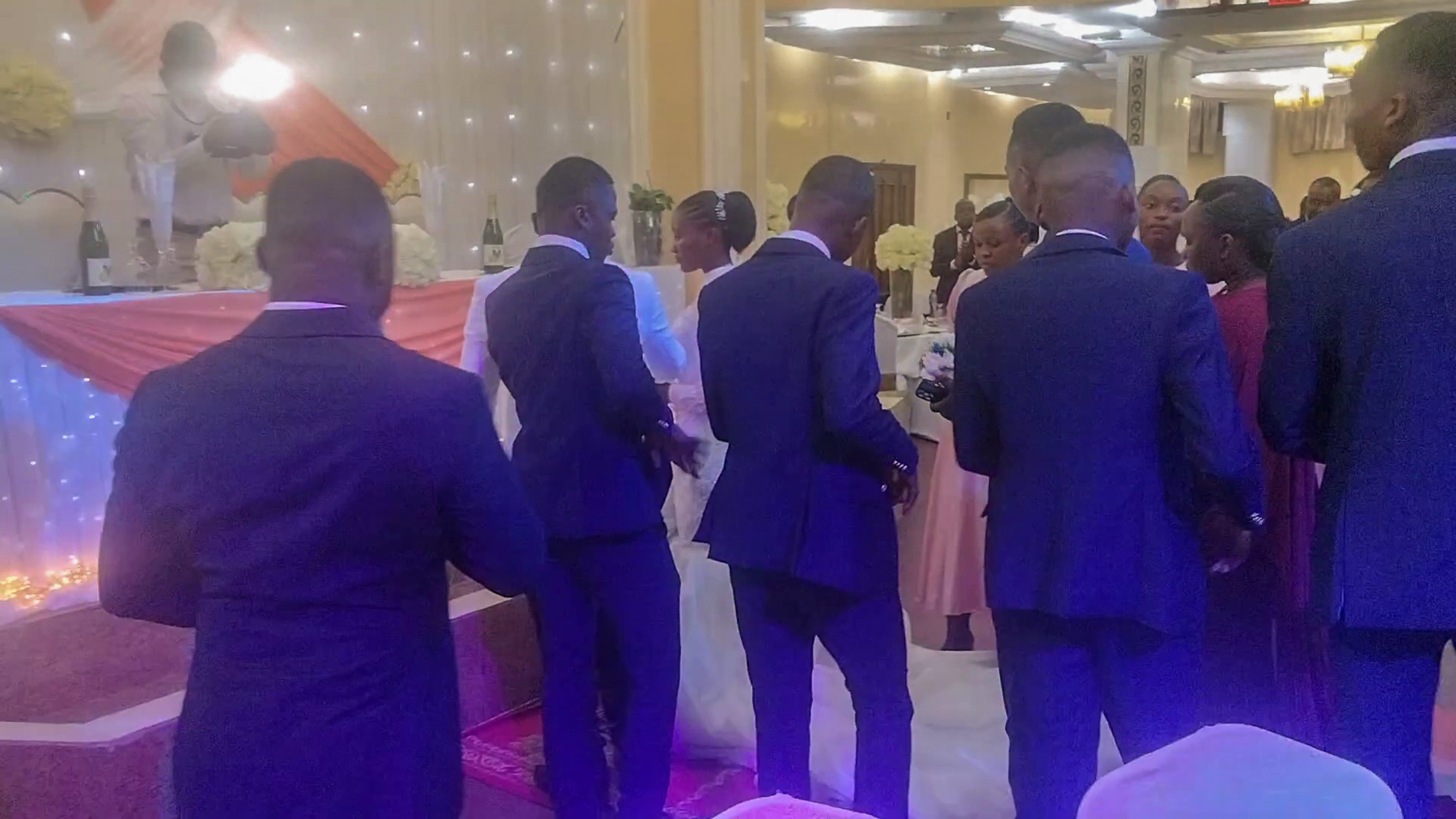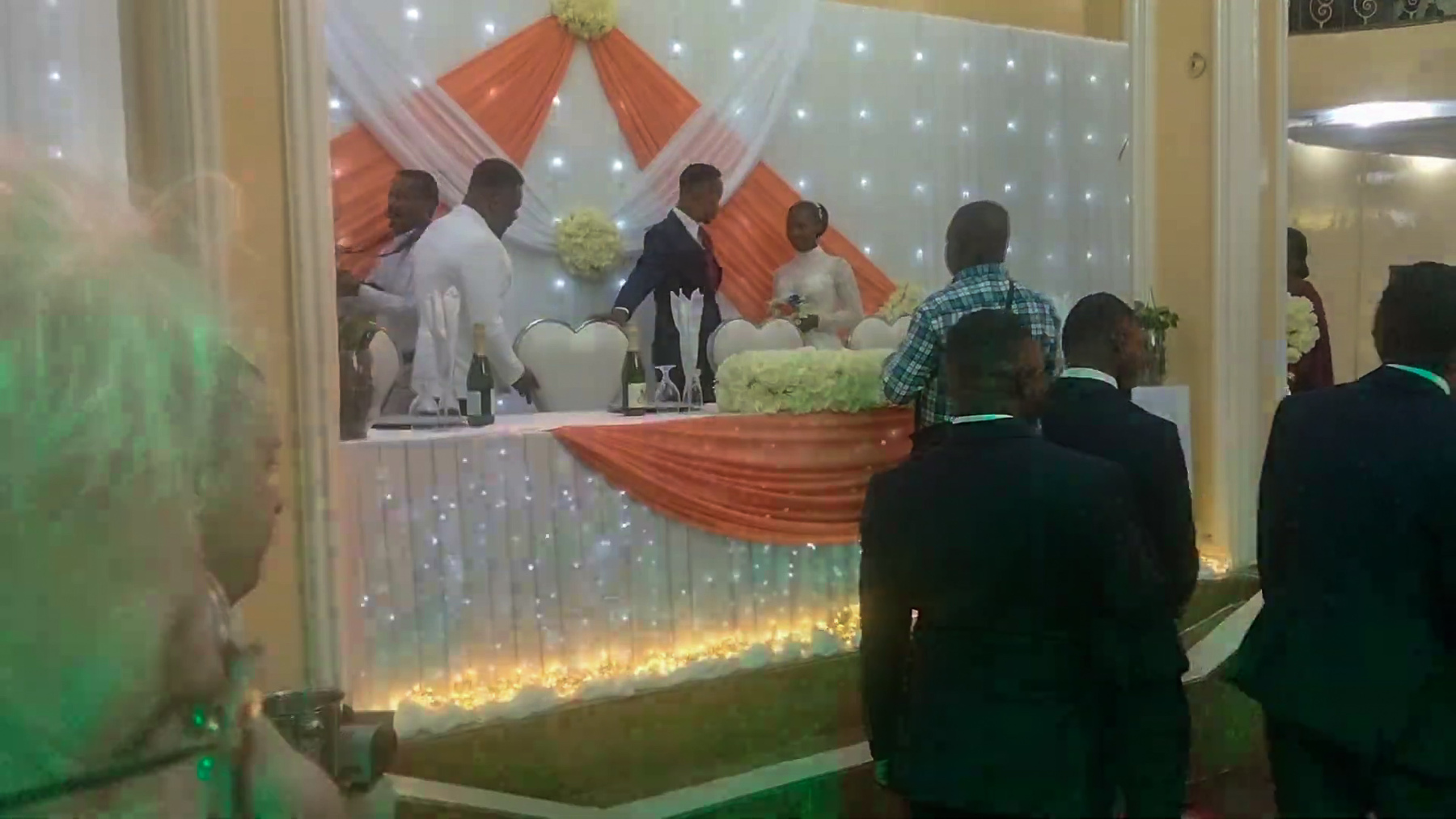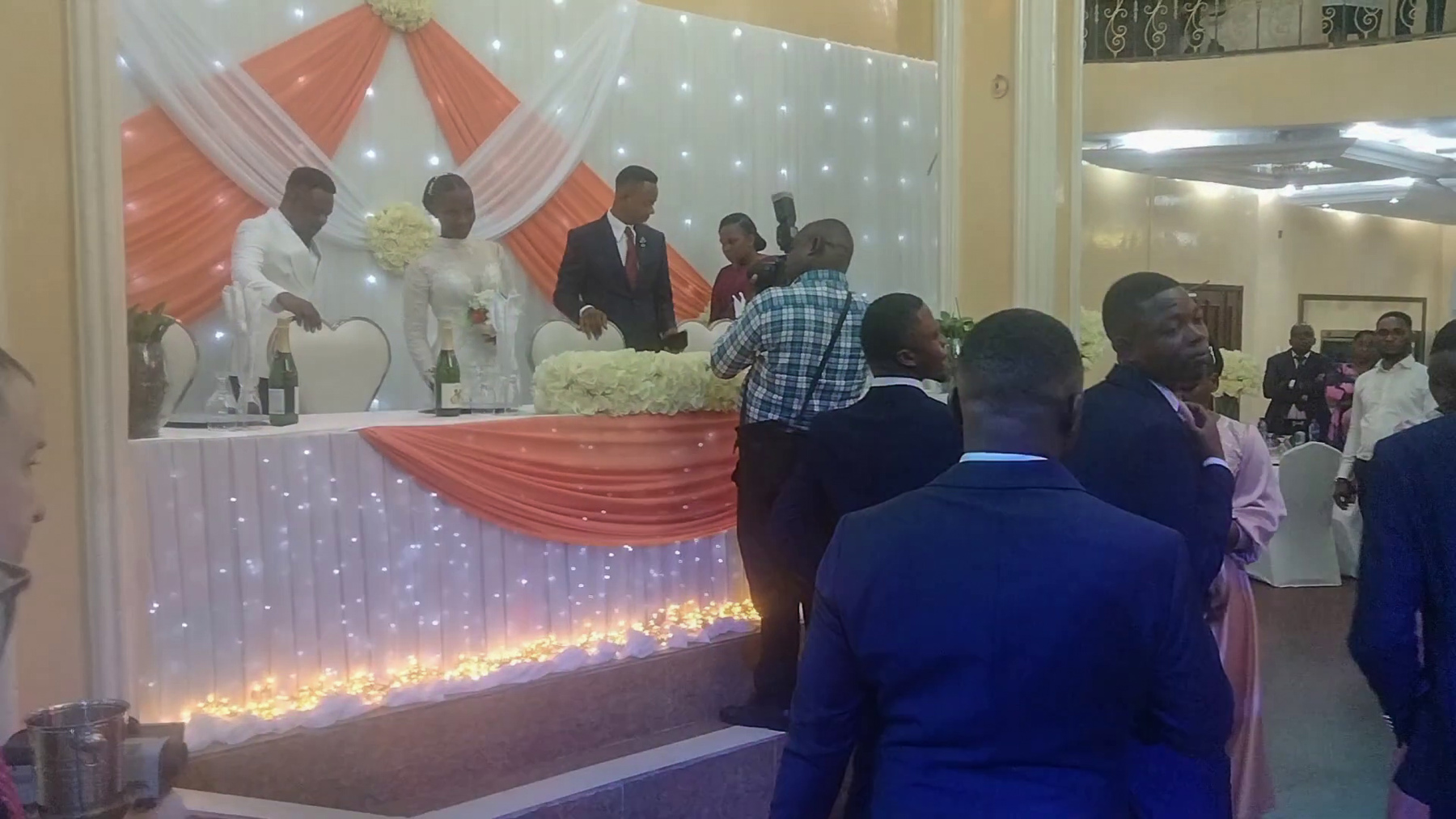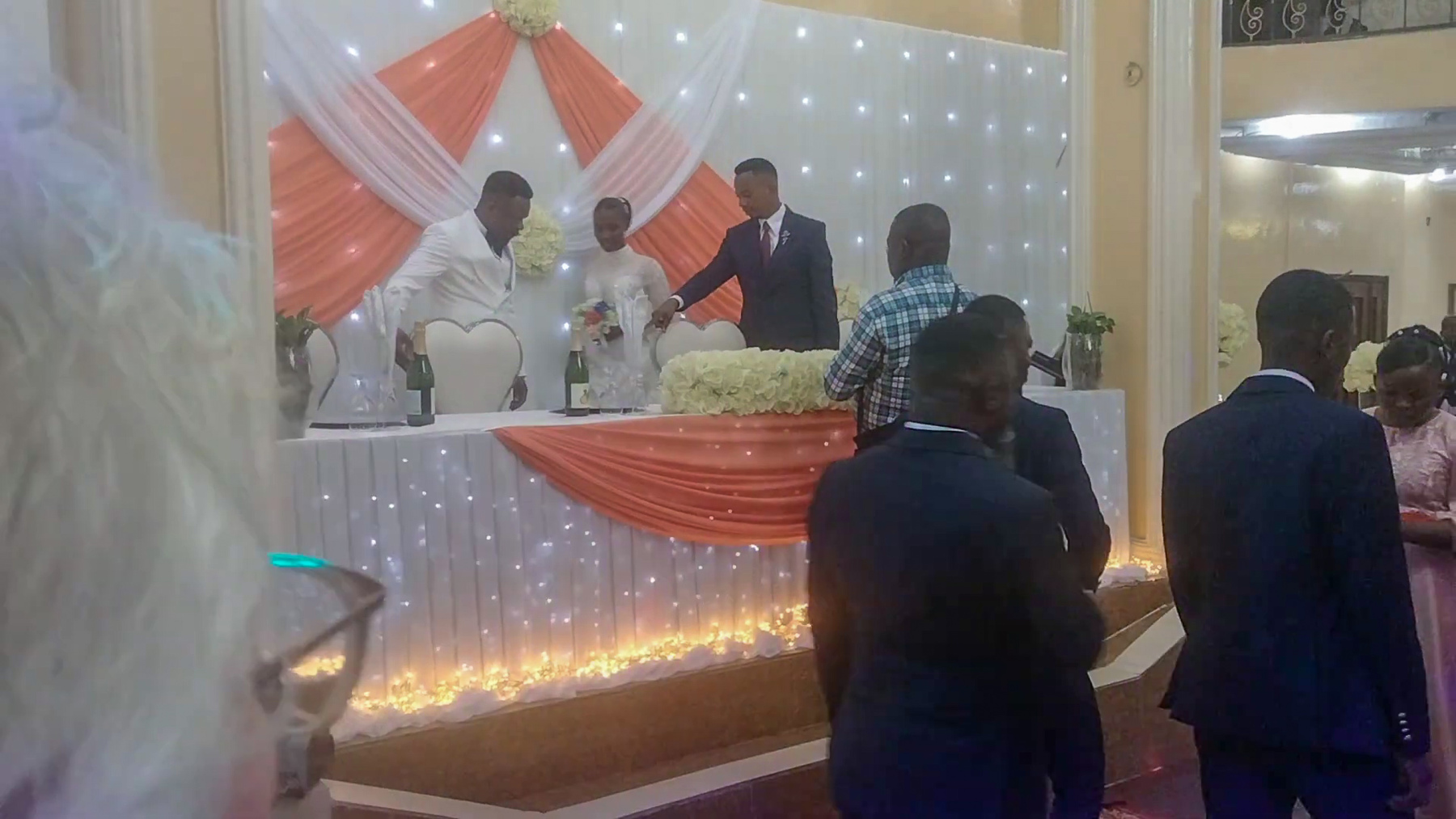Just to clear up one possible point of misunderstanding, one must be aware that there are two Republics of the Congo – one north of the Congo River and the other south of the river. The one north of the river is a former French colony, part of what was once French Equatorial Africa, and is now named the Republic of the Congo, but to distinguish it from the country south of the river it is often called Congo-Brazzaville, since Brazzaville is its capital. The country south of the Congo River is officially named the Democratic Republic of the Congo, usually abbreviated DRC. It is by far the larger of the two (108 million people to 5.5 million), and is in fact the second largest country in Africa by land area (Algeria being the largest). It has at various times been known under other names. In 1885 King Leopold of Belgium occupied the area and turned it into his own private property, infamously putting the population to work as slave labor and committing horrific atrocities; in Orwellian fashion he named the country the Congo Free State. In 1908 Leopold was induced by international pressure to give up his personal rule, and the country became officially a colony of Belgium, and was then known as the Belgian Congo. It won its independence from Belgium in 1960, taking the name Democratic Republic of the Congo. The first few years of independence saw a period of instability, which was resolved in 1965 with the seizure of power by army colonel Joseph Désiré Mobutu (later known as Mobuto Sese Seko), who with the support of Western powers established a dictatorship which ruled the country until 1997; he changed the country’s name to Zaïre. After the fall of the Mobutu regime the name reverted to Democratic Republic of the Congo, as it remains today. The capital city, which under Belgian rule was known as Leopoldville, was renamed Kinshasa in 1966, and that has not changed since. It is now a city of 17 million people.
Our first impressions of Kinshasa were mostly about the depth of poverty. We were surprised to find that such a great metropolis lacks a modern airport; the terminal is a decrepit building looking like a 70 year old gas station that has seen no care in all that time. One gate, no jetway.
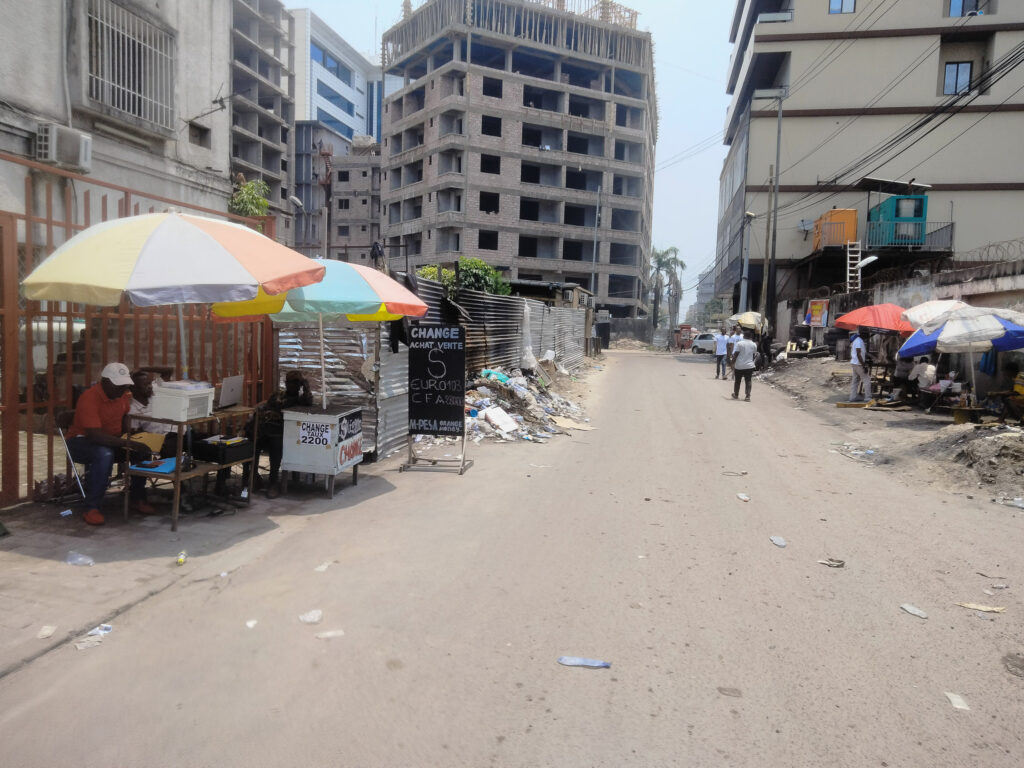
There is a saying that applies to much of Africa: “The ground is your trash can”. There is no waste disposal service in Kinshasa and no outside trash cans. Places where people congregate fill up with trash quickly. So what is their solution? That’s right – burn it. And much of the trash is plastic. Considering that there are trash fires all over, imagine the toxic compounds that everyone is breathing every day.
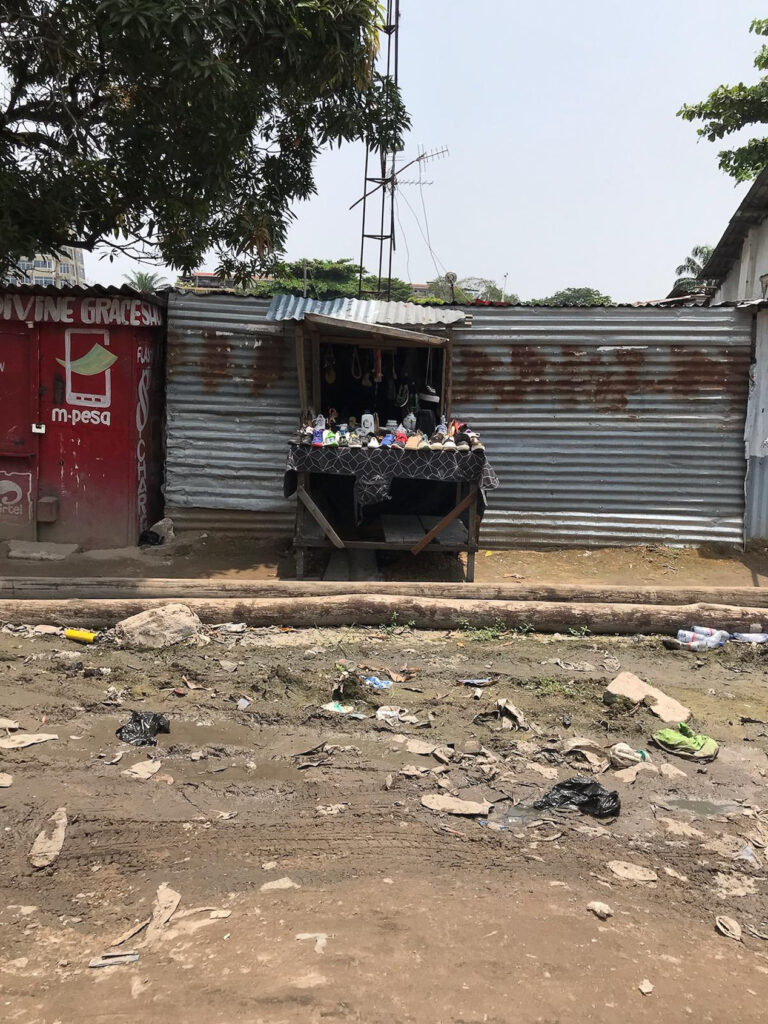
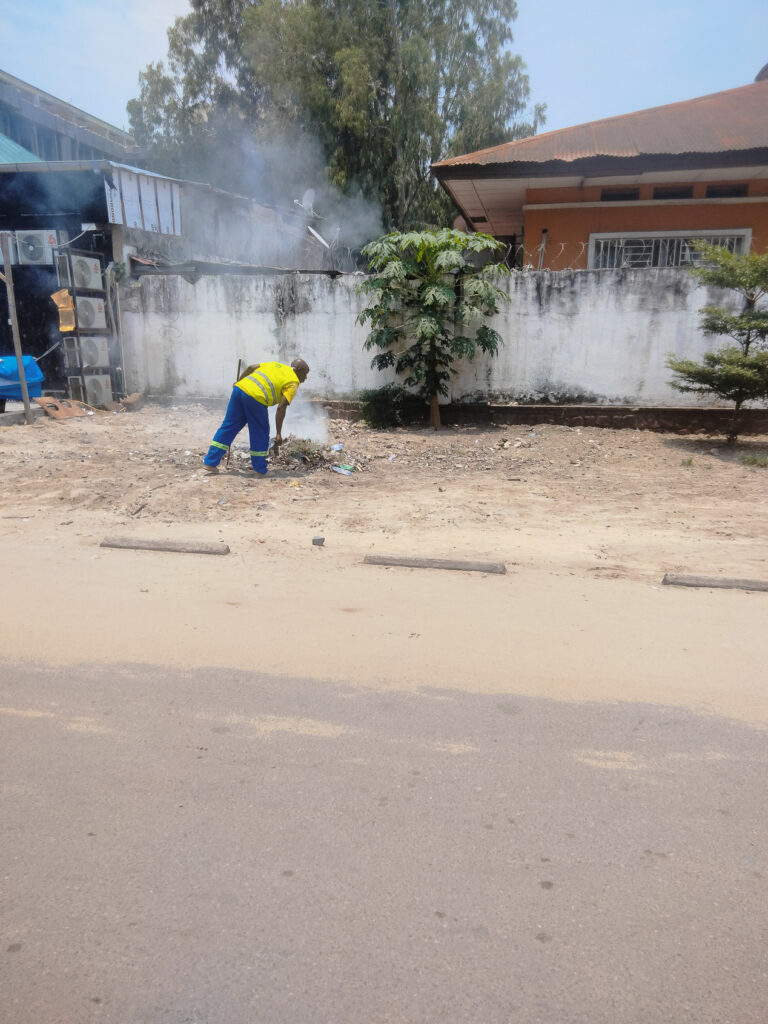
We stayed at a 4-star hotel in Kinshasa, the Royal. We found that it was host not only to humans, but to a few non-human guests as well. The latter included a male and female of an unknown species; the male wanted to mate with the female in the worst way, and she was willing, but he seemed to share the common African aversion to PDA, and kept shying away.
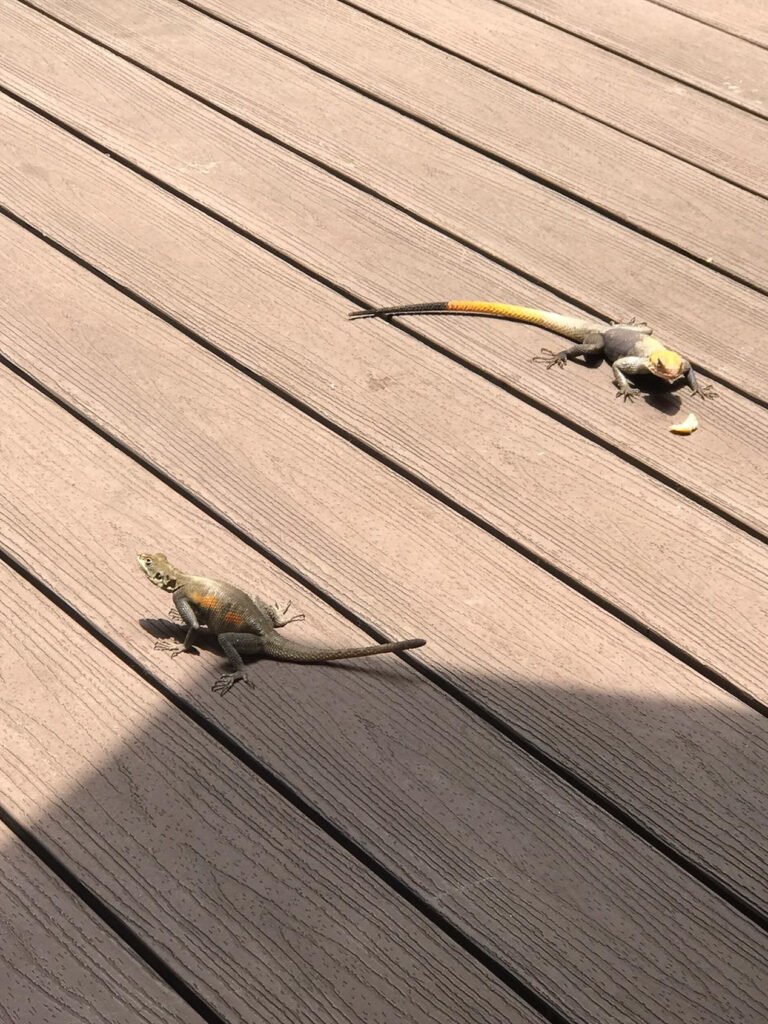
One of the interesting Third World experiences is driving. I finally figured it out in Congo. Driving is one gigantic game of chicken. If you don’t mean it, you lose. If you mean it, you win, unless you come up against someone else who means it.
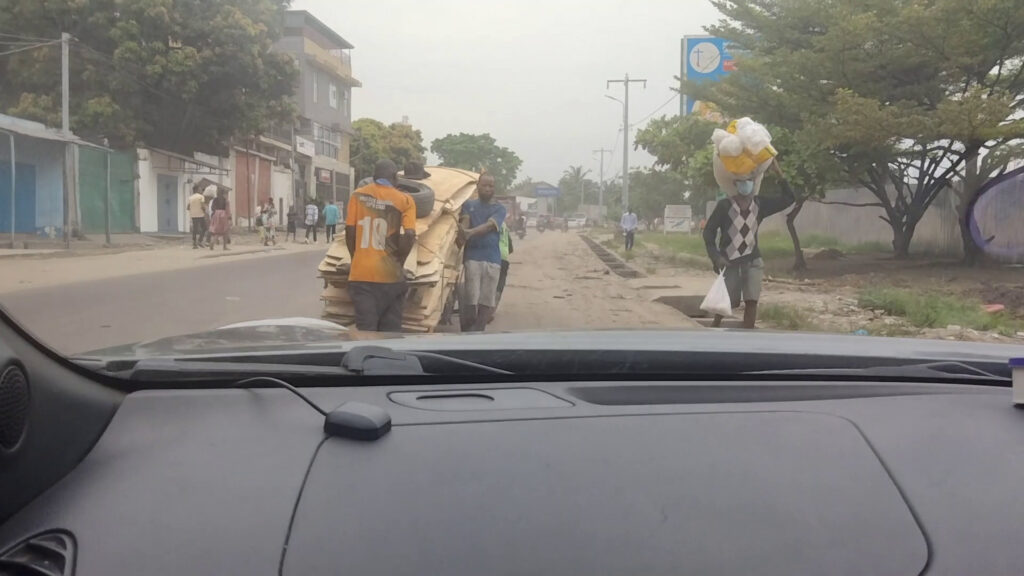
I missed out on recording the fearsome driving tactics of some of the locals, but I shot a video of us proceeding down a street crowded with people shopping at booths set up along the curbs. The congestion is incredible. Oh, and those yellow vans – they really pack people in. I would guess 25 people per van.
You’ve probably seen the shape of especially the taxis and vans. Scrapes and dings everywhere. Not surprising, I guess.
When we were driving down the street and were stopped by traffic, vendors would descend on us. They sold all sorts of products – mostly fruits and vegetables, but also other things like USB cables, windshield wiper blades, etc. Whip out the Congolese francs and make the deal.
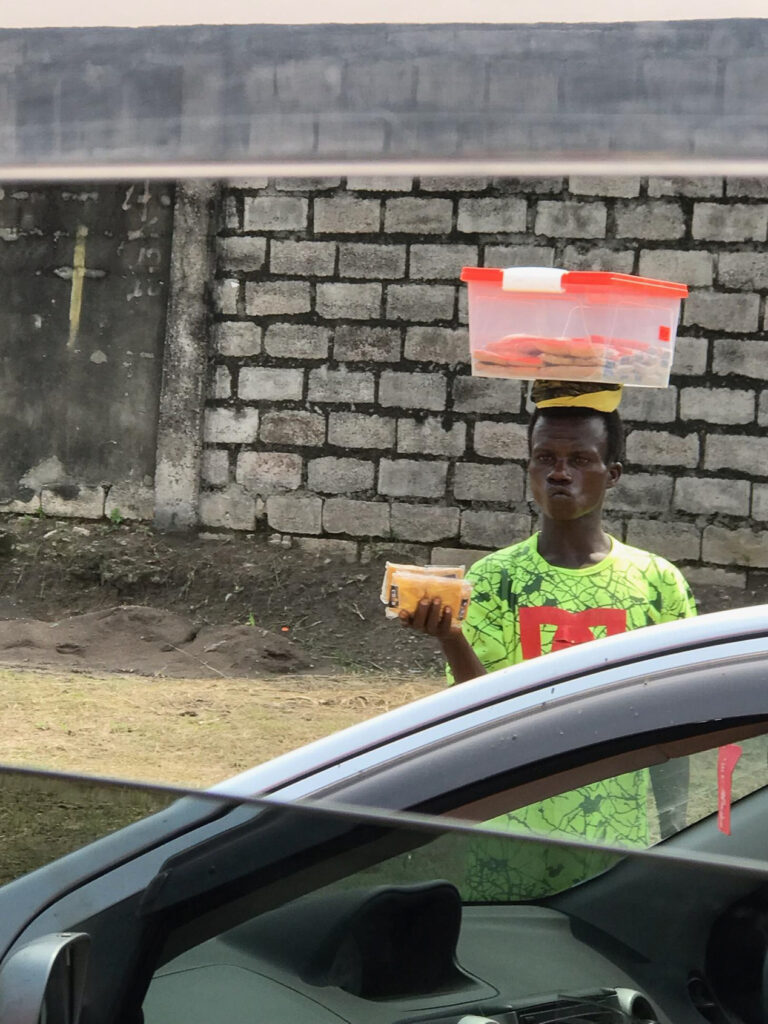
Another thing. When we were doing something simple like looking for a parking space (not necessarily all that simple in Congo) someone would start gesturing us to follow him. The first thought is that he represented some of the shops along the street. He would then tag along with us attempting to “help” along the way. Of course we should have known. He was just a guy angling for a tip. Josué’s in-laws, who drove us around, would often blow them off, but not always.
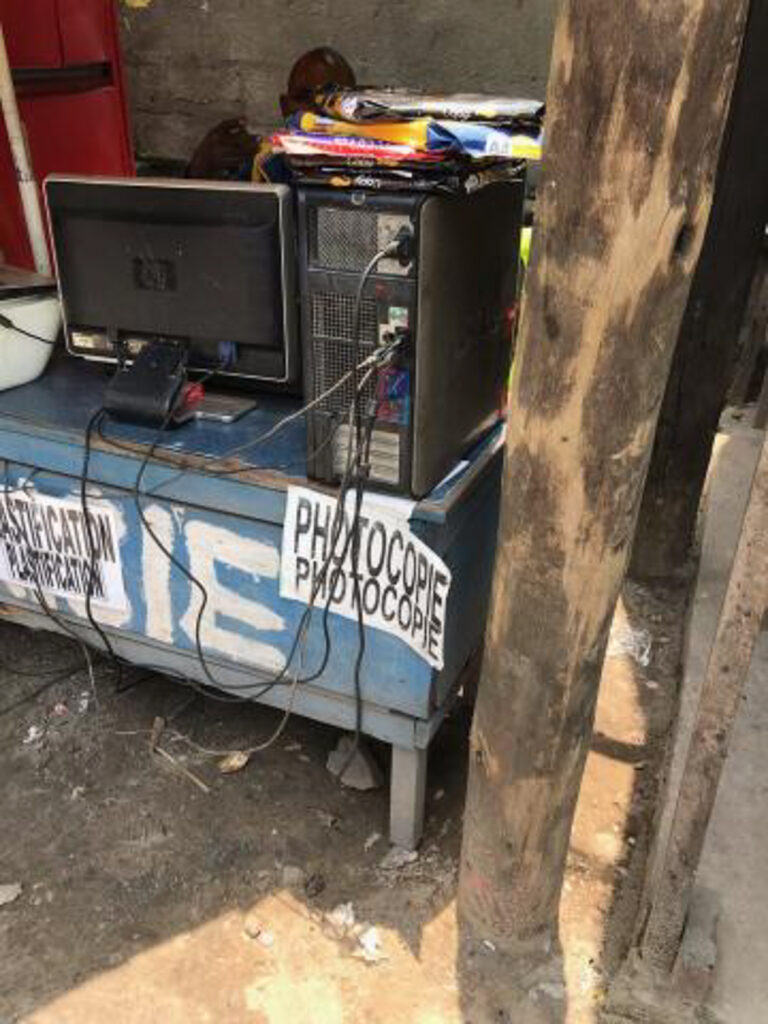
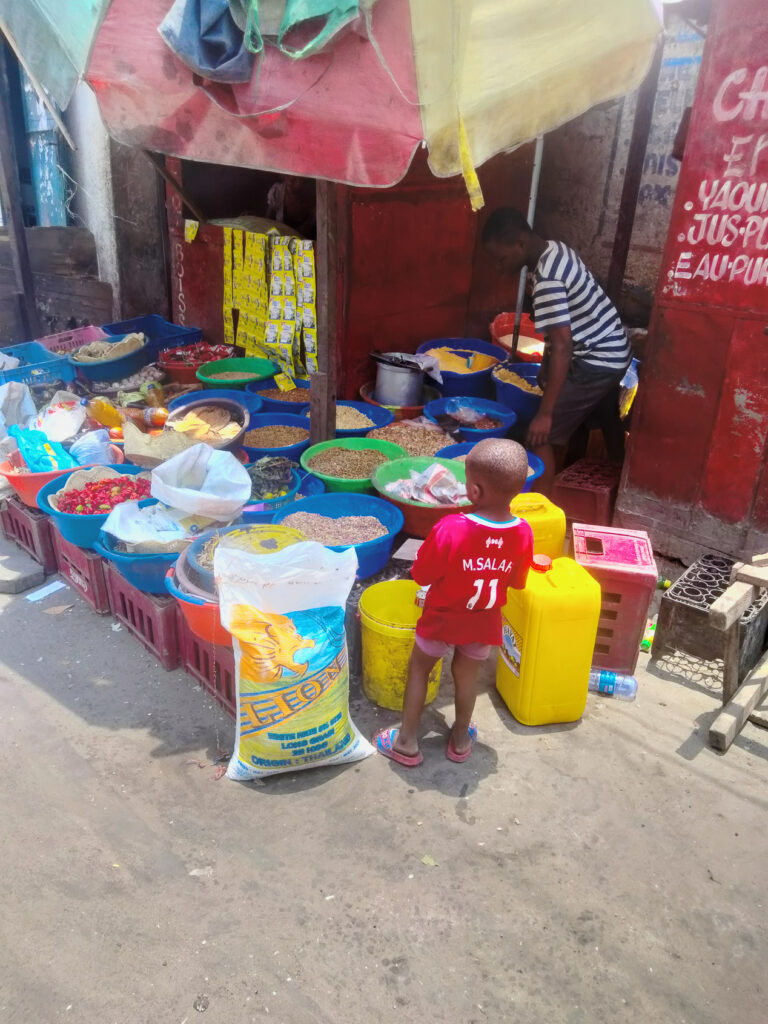
We very much enjoyed our African kids. It can be tiring but is worth it. In some ways they are quite different from us westerners, and in other ways they are much the same.
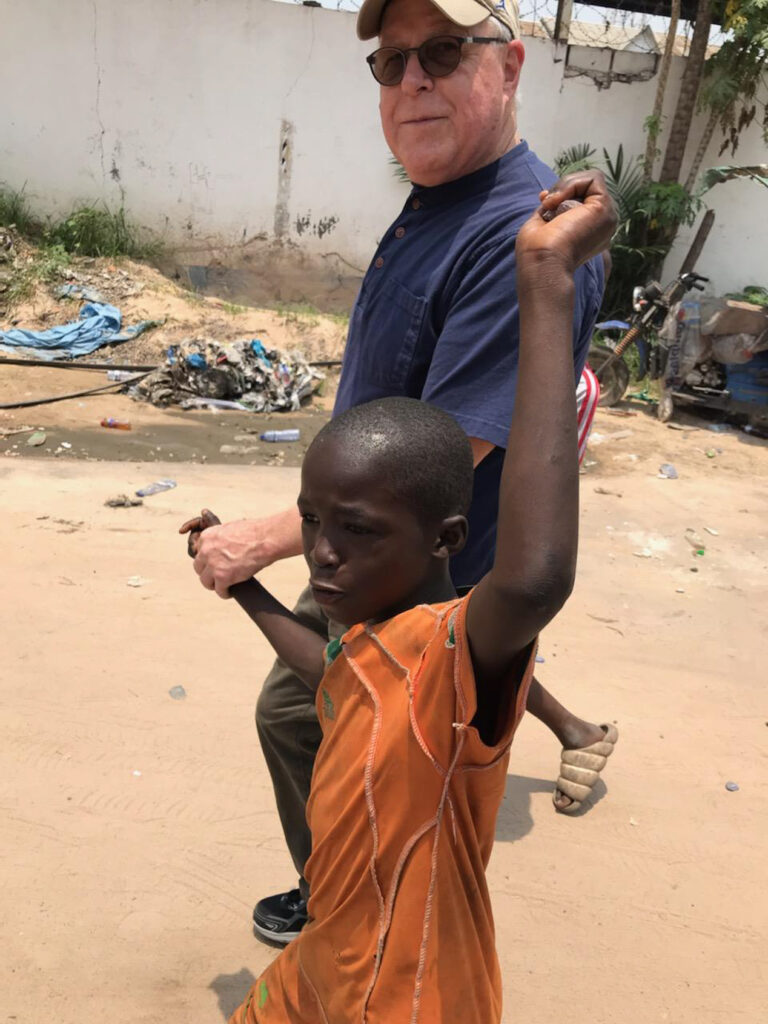
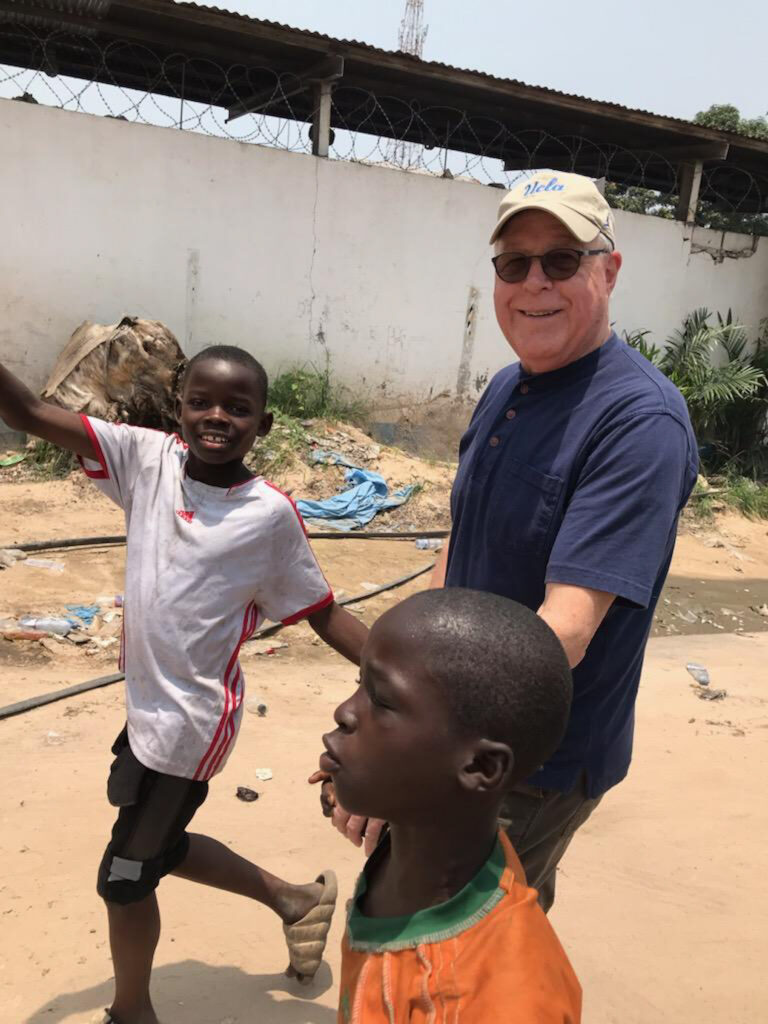
We did hand out gum to kids when we were out and about. They would have preferred money, but we didn’t think that wise. On a trip to a village along the Congo River, two 8-9 year old kids became our guides. They ran ahead of us at least a mile and then accompanied us after we parked. They would help us get into a dugout canoe and do anything else to assist. I ended up giving one of them my UCLA cap. Probably the only UCLA cap in Congo. But when we departed the village, things changed. One of our vehicles got stuck in the mud, and the boys helped push it out. I’m sure, as small as they were, their help was of no effect, but they asked the driver for a tip anyway. He refused. From that point on, they stayed in front of the car, trotting slowly, blocking us as best they could, even risking their lives to stay ahead of us. We didn’t get around them until we reached the main highway.
On one occasion we took a ride to a park and came across an army bus that was stuck. Jay and I tried to help push it out of its predicament, but in vain.
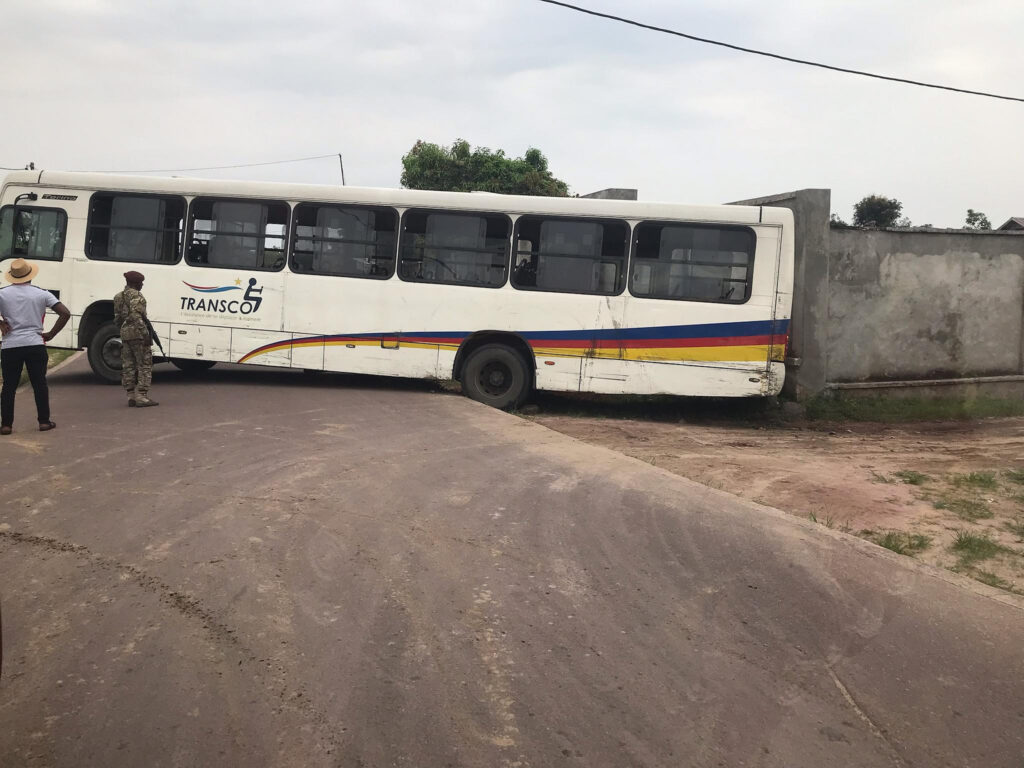
Josue and Sharon’s wedding took place on Sunday, February 26. It was very nice; they wouldn’t let us take pictures of it, but I nefariously shot a video anyway. Here are some excerpts from it.
Africans seem to have a bit of an aversion to public displays of affection (PDA), and Josué was no exception. When he and Sharon started dancing, they just held hands, and the photographer then forcibly placed his hands around her waist and her hands on his shoulders, and then they danced rather clumsily after that.
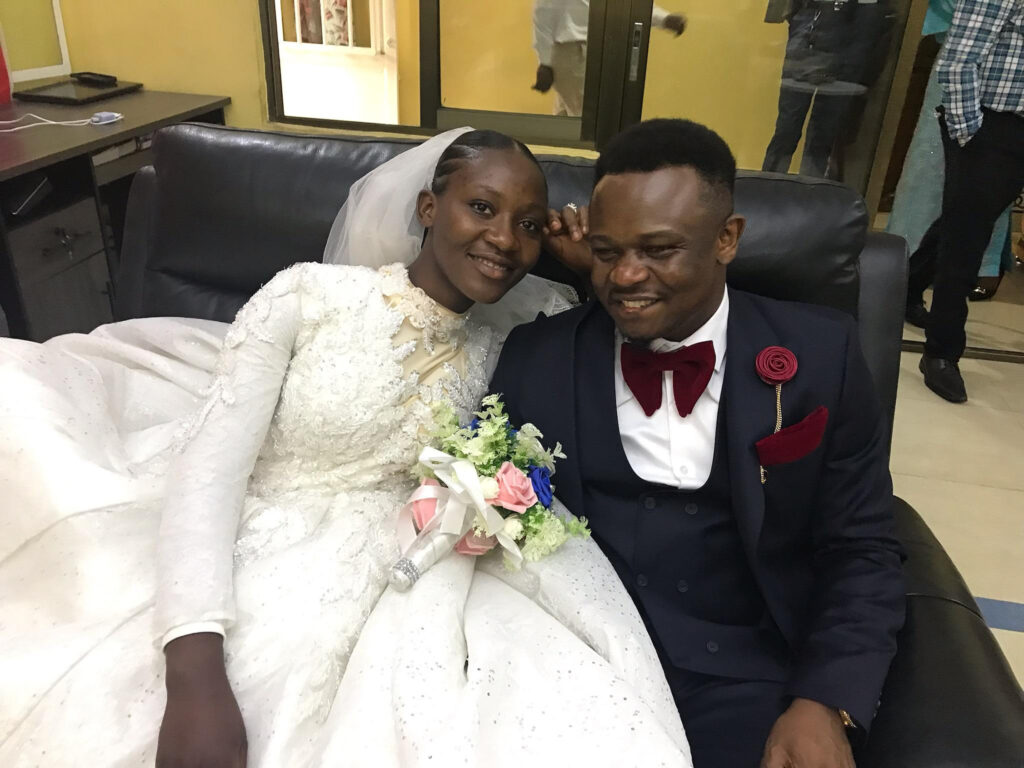
The day after the wedding, February 27, we went to the wedding feast, which was held in N’Sele, a village on a river to the east of Kinshasa. It was extremely congested driving into it, with shops (portable shops) lining both sides and shoppers clogging the streets. We finally reached an open area next to an outdoor restaurant, and we parked there.
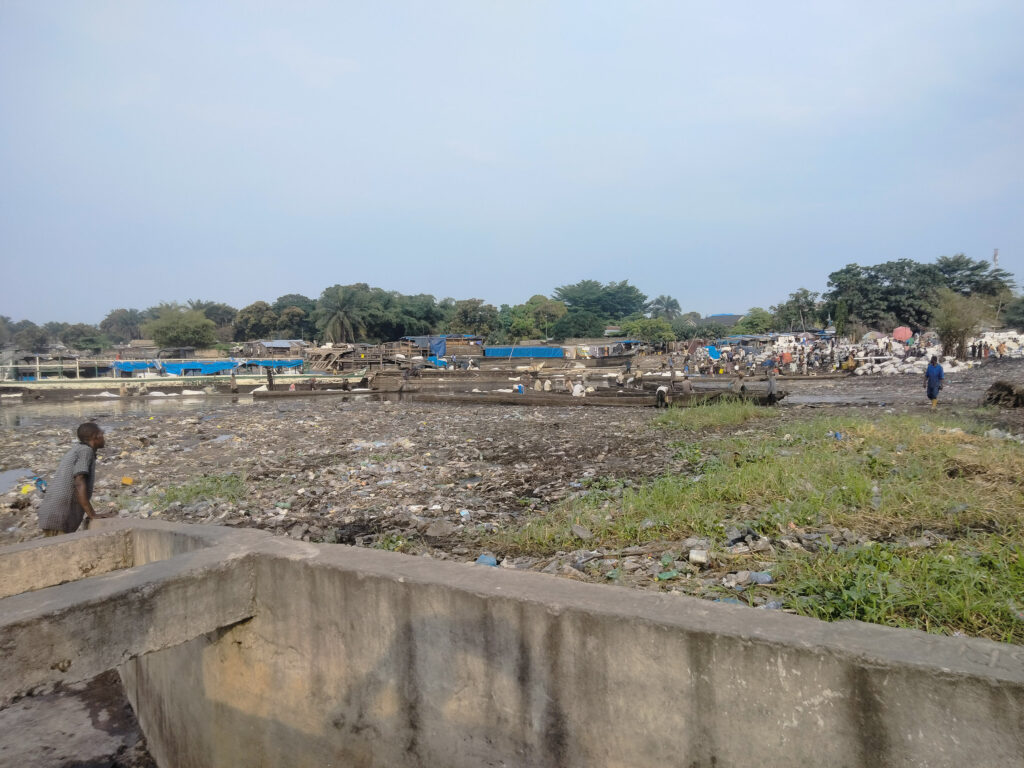
Down to the water we went (where you saw all the trash). As elsewhere in the Congo, there were people willing to help us find our way, assist us in finding transport, etc., of course in hopes of a bit of remuneration.
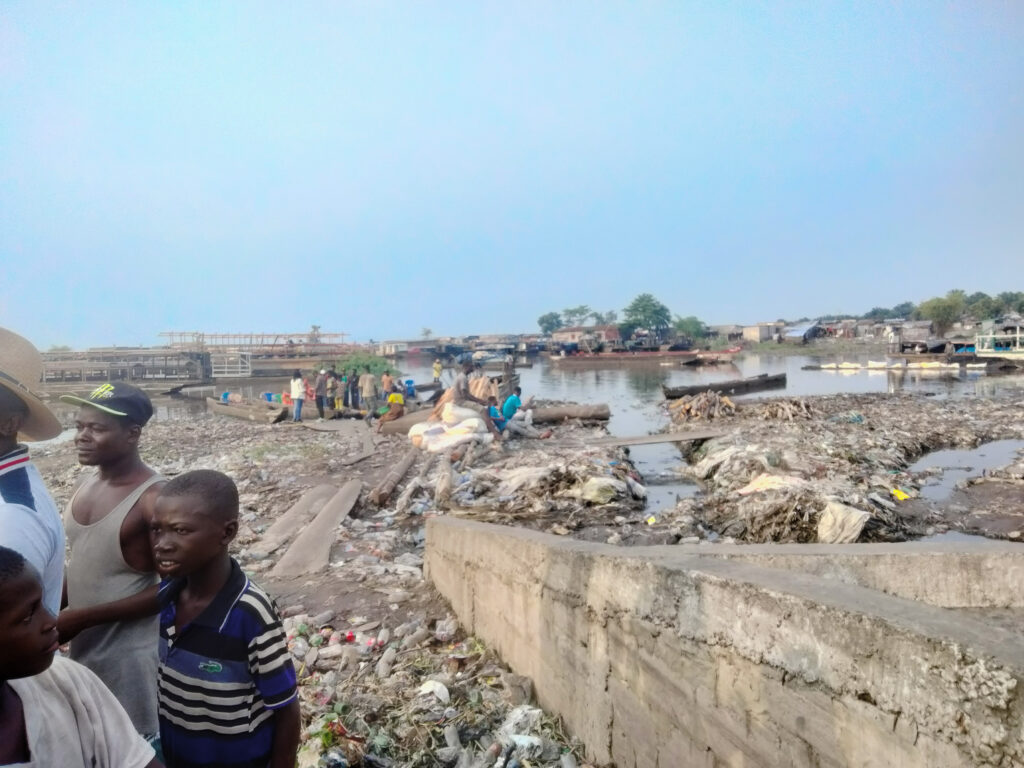
A jolly boatman paddled and poled us across the channel in a dugout canoe.
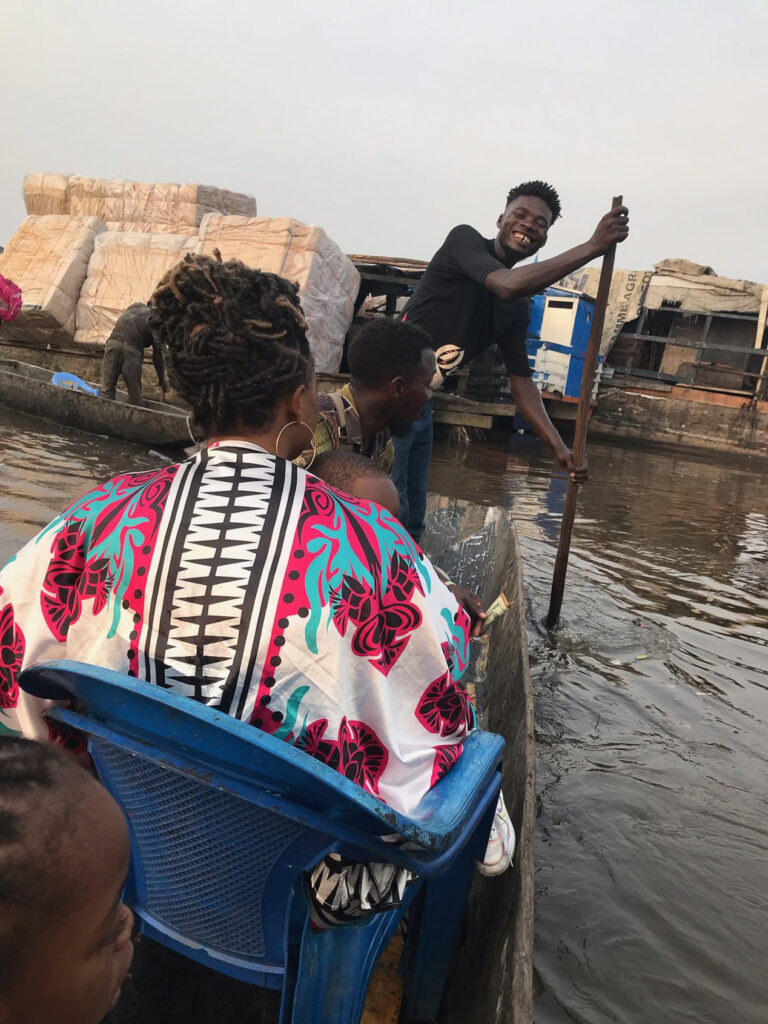
Accompanying us on the boat was Pirette, a dear friend from Cleveland, who was in Congo helping her mother. She has a natural gift for languages. She even knows a Namibian “click” language!
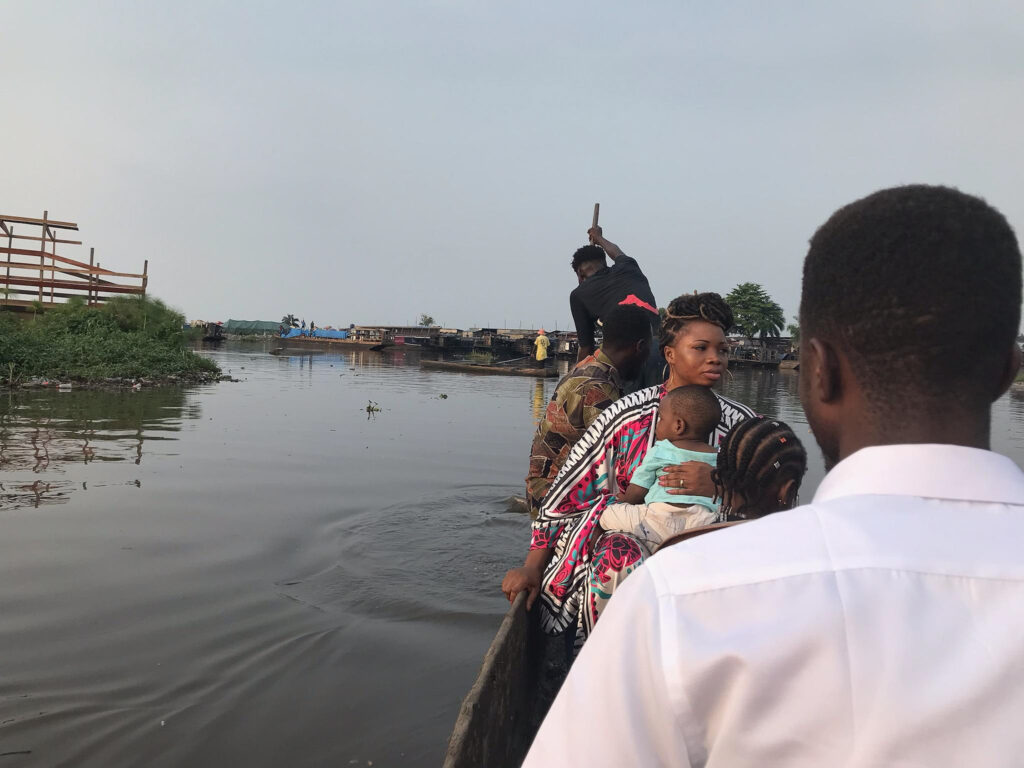
They paddled and poled us across the channel, where there were lots of women selling different species of fish, some of them quite large, as well as a very large eel, with a huge circumference (unfortunately I accidentally deleted the picture I took of it).
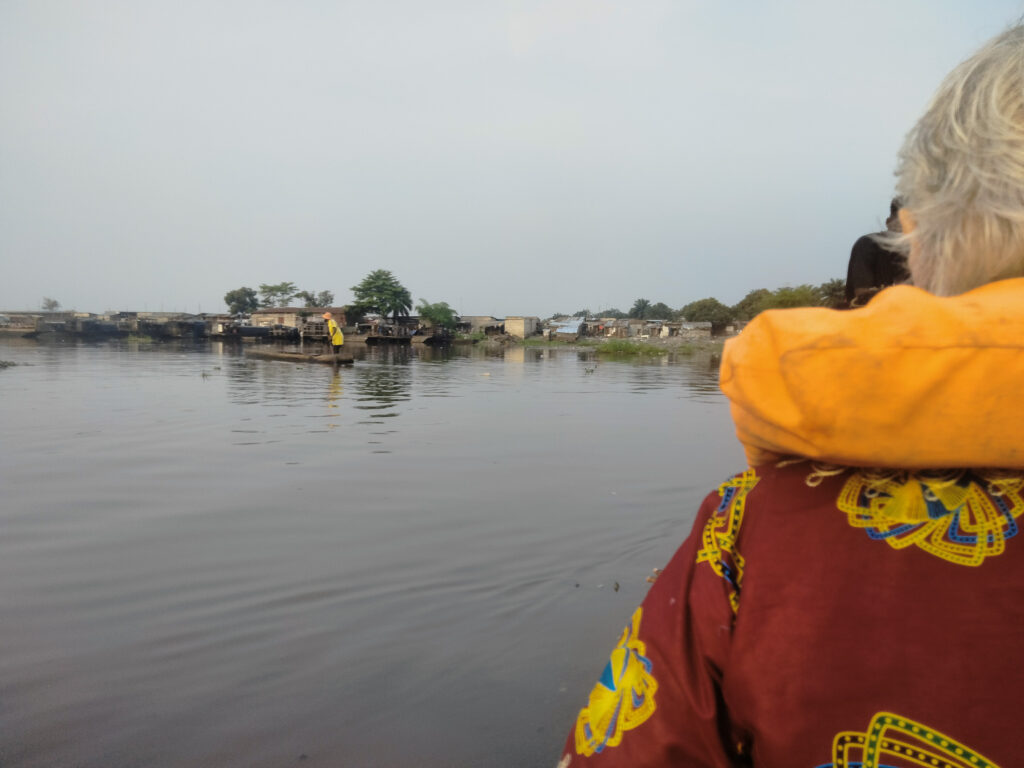
They even had a live Western African crocodile all bound and gagged, so it wouldn’t eat the rest of the catch or any of the vendors and customers. It must have been a hungry crocodile.
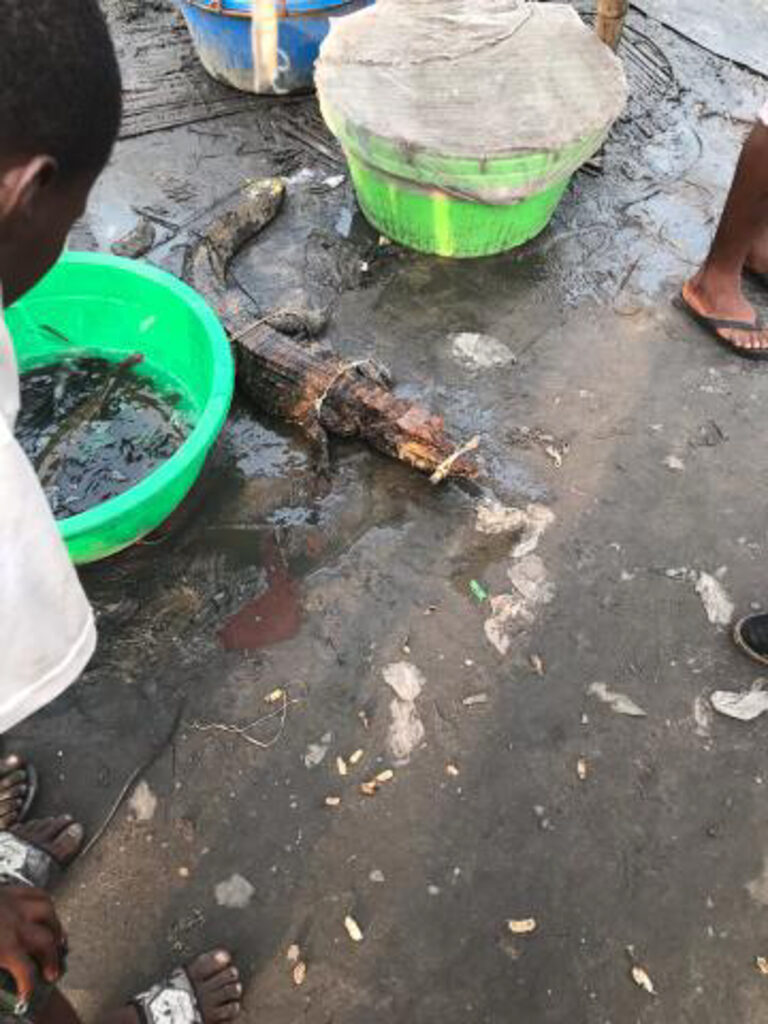
I contemplated buying the crocodile to have it made into a new purse for JoAnne, but time was short, and other matters took precedence. We wanted to reach the river itself, but it was too far away; evening had arrived, and it was time to show up for the wedding feast.
We hopped aboard another dugout canoe, piloted by another friendly boatman, who took us back to the village of N’sele.
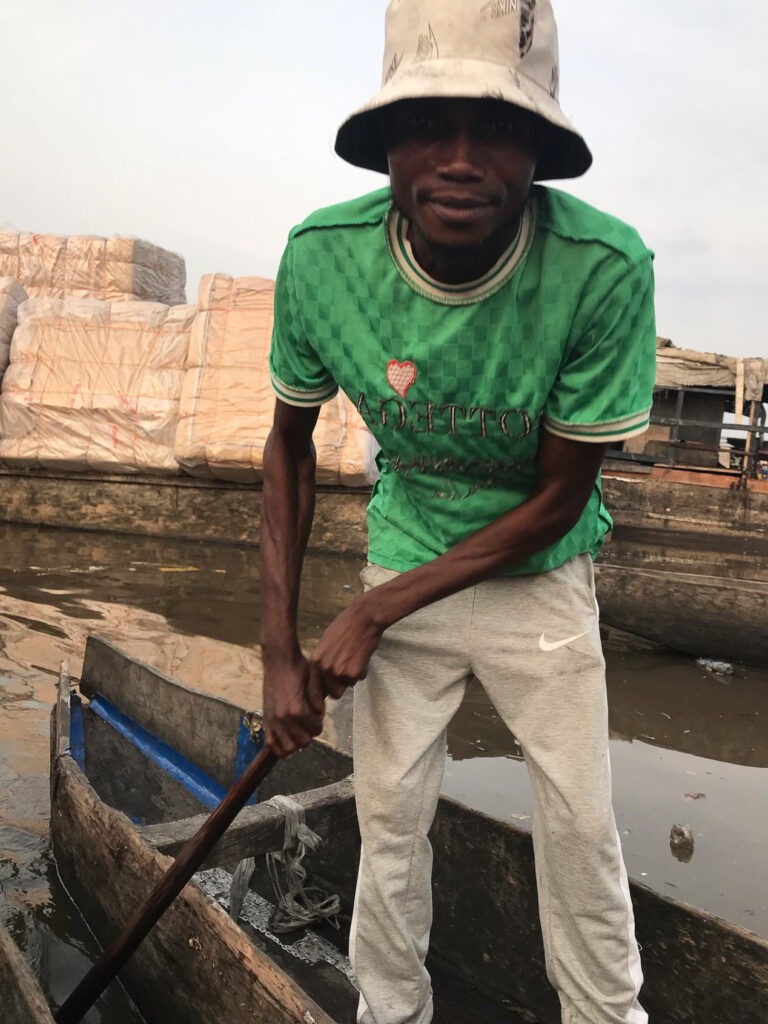
As we pushed off the riverbank, I was able to capture one final shot of the fish market with the sun reflecting on the water.
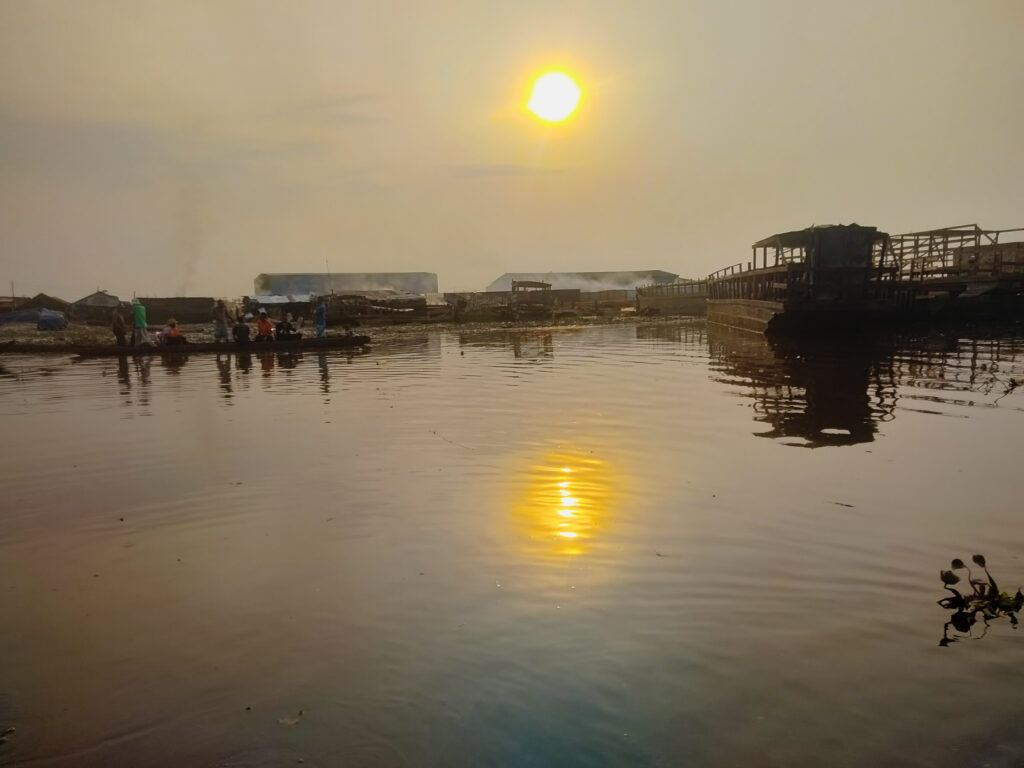
The wedding feast was held in the outdoor cafe near our parking place; it had the appropriate name of “Sous les Bambous.” Here the cook grilled the fish we had bought in the market.
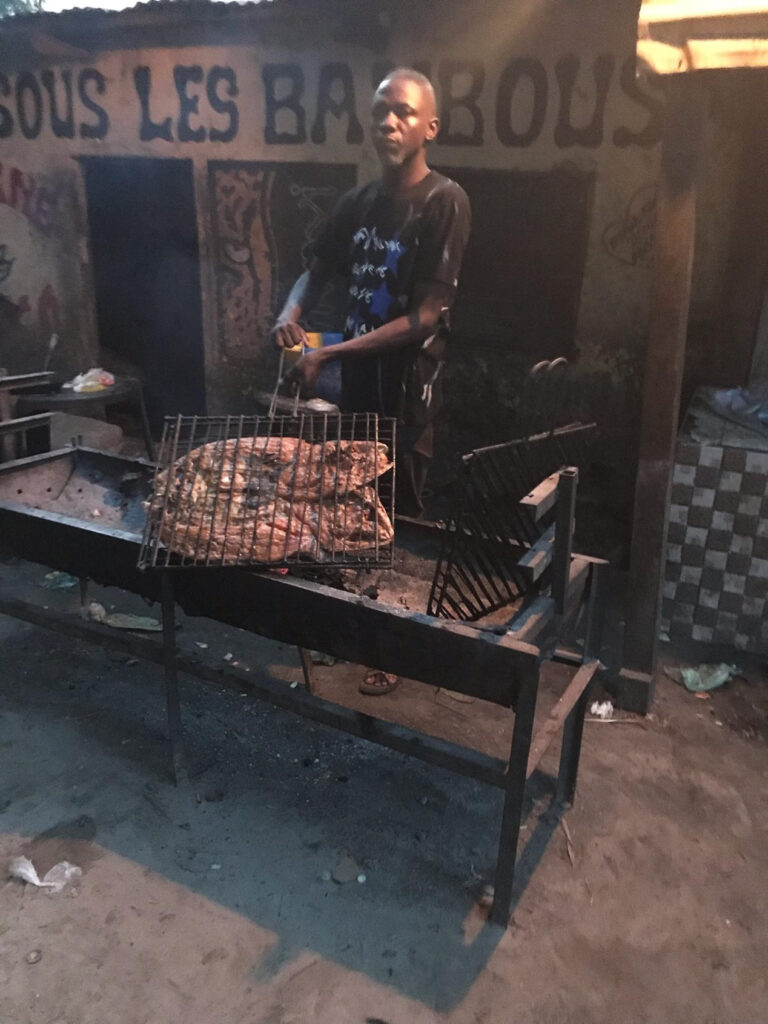
Here we see, on the right-hand side of the picture, the restaurant manager in front, behind her Pirette and our driver, Jefferson; while on the left Daryl and Jay dig greedily into the appetizers.
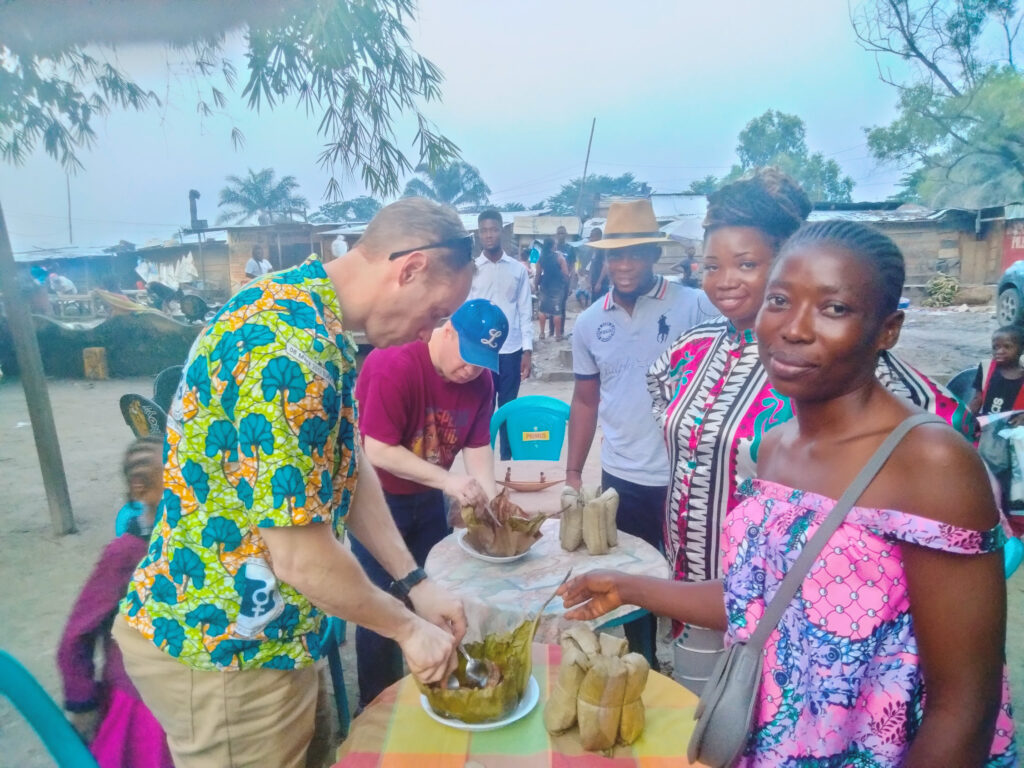
The feast featured an entree of fish, accompanied by all sorts of other goodies. The fish looked like a variety of catfish, but whatever it was called in Lingala or French is lost to us.
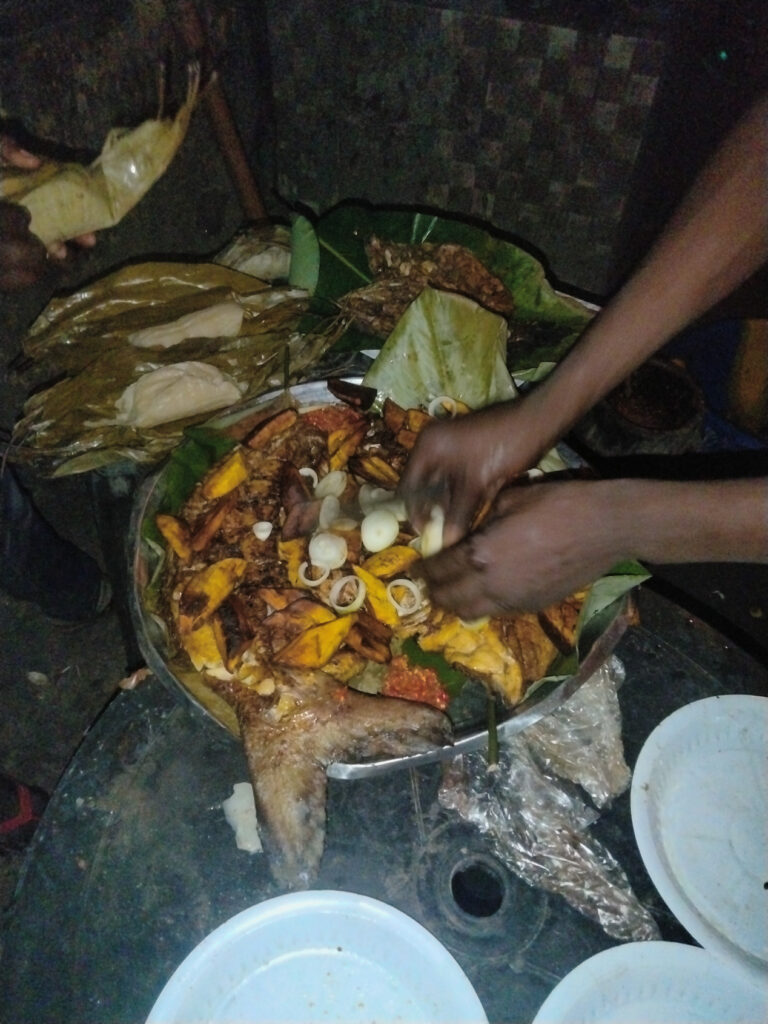
Some of us wanted to party all night, but we had to cut short the festivities and return to our hotel, since we were scheduled to depart at 2 AM the next morning.
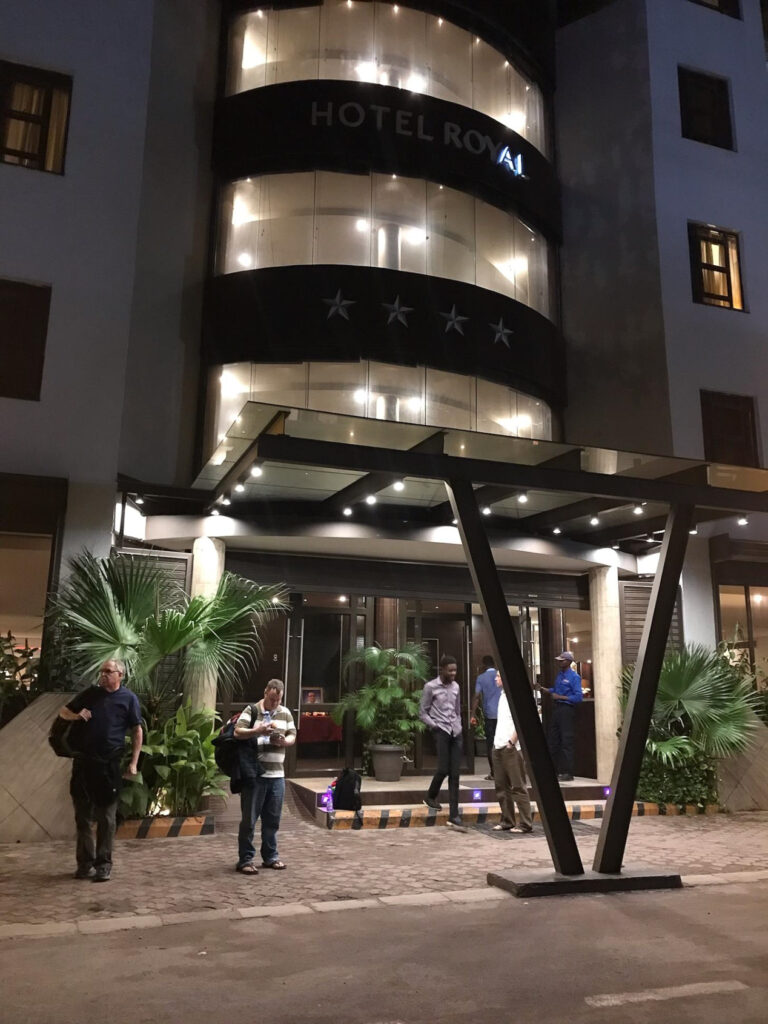
When we returned to Kinshasa Airport to board the plane for our return flight, Jay couldn’t find his passport. Nightmare! We called my son Daryl back at the hotel, but he couldn’t find it. Not in the car. Not with the family we had been visiting. I had just finished telling Jay to go back to the hotel, and Daryl would take him to the US Embassy tomorrow when JoAnne announced she had found Jay’s passport in her backpack. Whew! I couldn’t be angry with her because I have been mixing up and misplacing papers all week!
To board the plane, we had to present our passports about six times and our COVID vax cards three times, each time punctuated by a request for a tip. Everyone wants a tip. We did not have anything under a $20, so they made out like bandits.
